MacBook Air vs. MacBook Pro 2025: Which Mac should you buy?
Here's how to decide between the MacBook Air vs. MacBook Pro in 2025.
Sign up to receive The Snapshot, a free special dispatch from Laptop Mag, in your inbox.
You are now subscribed
Your newsletter sign-up was successful
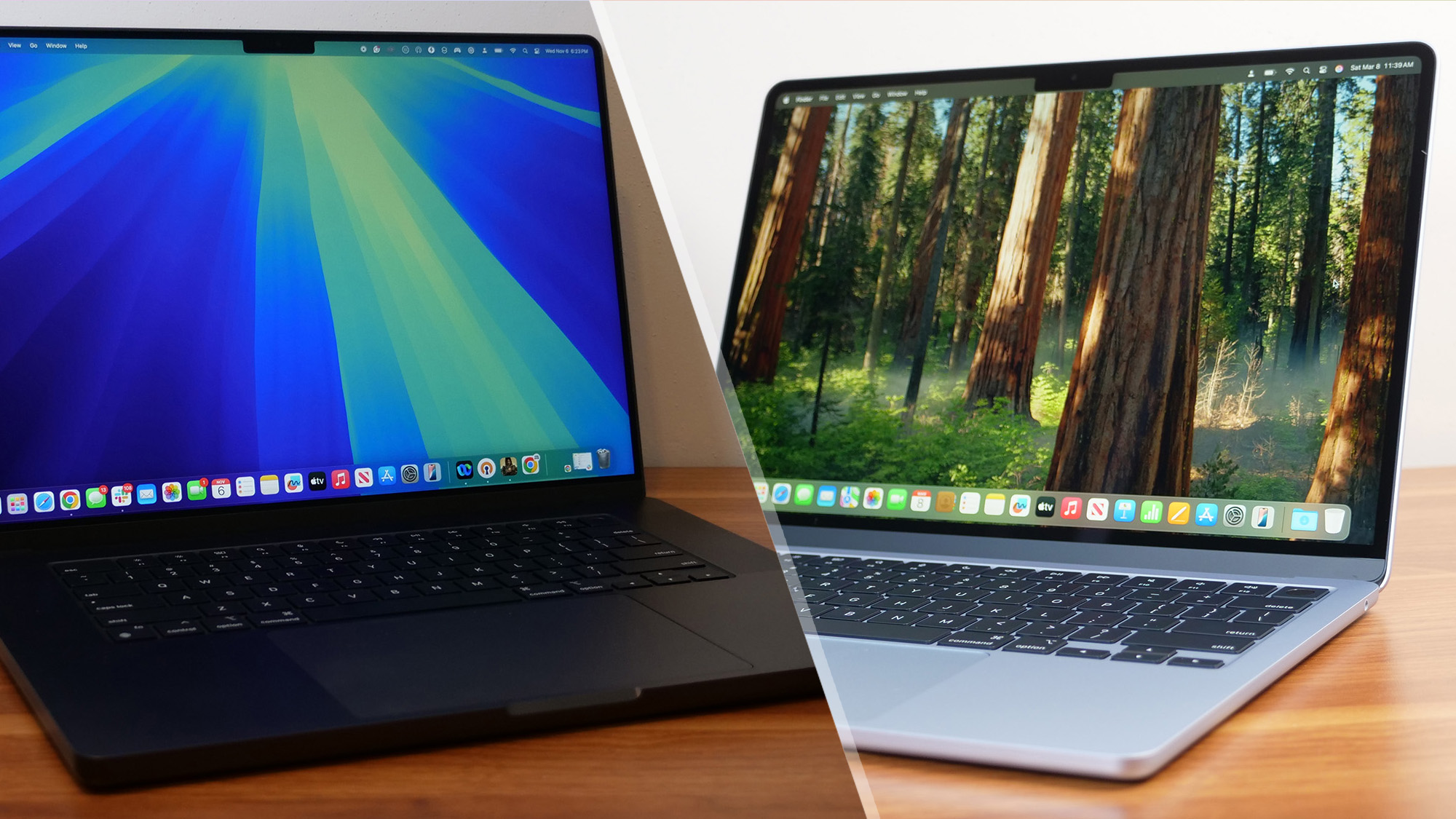
1. The list in brief
2. Best for most people
3. Best affordable big screen
4. Best for pros on the go
5. Best for peak performance
6. How we test MacBooks
7. Why trust Laptop Mag
You've decided you want a MacBook, but the question of "MacBook Air vs. MacBook Pro?" remains. I'm not a certified Apple Genius, but I've spent hundreds of hours using and reviewing every current MacBook Air and MacBook Pro for Laptop Mag, so I'm ready to help you find the best MacBook for your needs.
Let's start with the basics: In 2025, the MacBook Air and Pro lineups consist of four options: 13.6-inch and 15.3-inch MacBook Airs and 14.2-inch and 16.2-inch MacBook Pros.
The MacBook Air models are limited to Apple's M4 chip, while the MacBook Pro features the M4, M4 Pro, or M4 Max. Only the Pro models offer the more powerful "Pro" or "Max" chipsets, one of the most apparent differences between the Air and Pro MacBooks. The base MacBook Pro 14-inch blurs these lines with its standard M4 chip.
People often ask me, "Is the MacBook Air or MacBook Pro better?" There is no universal answer to that question; there is only which is better for you. So, let's find out.
I will compare price, features, performance, battery life, and more to determine whether you should invest in the MacBook Air or MacBook Pro in 2025.
And once we've determined whether the MacBook Air or Pro is better for you, our best MacBook deals can help you secure the best price.
MacBook Air vs. MacBook Pro: Specs compared
| Row 0 - Cell 0 | Best for most | Big screen value | Portable power | Peak performance |
| Row 1 - Cell 0 | MacBook Air 13 (M4) | MacBook Air 15 (M4) | MacBook Pro 14-inch | MacBook Pro 16-inch |
Price | ||||
CPU | M4 | M4 | M4, M4 Pro or M4 Max | M4 Pro or M4 Max |
RAM | Up to 32GB | Up to 32GB | Up to 128GB | up to 128GB |
Display | 13.6 inches (2560 x 1600) | 15.3 inches (2880 x 1864) | 14.2 inches (3024 x 1964), 120Hz | 16.2 inches (3456 x 2234), 120Hz |
Ports | 2 Thunderbolt 3/USB 4, MagSafe, headphone | 2 Thunderbolt 3/USB4, MagSafe, headphone | 3 Thunderbolt 4, HDMI, SDXC card, MagSafe, headphone | 3 Thunderbolt 5, HDMI, SDXC card, MagSafe, headphone |
Graphics | M4 | M4 | M4, M4 Pro or M4 Max | M4 Pro or M4 Max |
Storage | up to 2TB | Up to 2TB | Up to 8TB | up to 8TB |
Battery Life (hrs) | 15:42 (tested) | 15:14 (tested) | 18:32 (tested) | 20:46 (tested) |
Security | Touch ID | Touch ID | Touch ID | Touch ID |
Size | 11.97 x 8.46 x 0.44 inches | 13.40 x 9.53 x 0.45 inches | 12.3 x 8.7 x 0.6 inches | 14 x 9.8 x 0.66 inches |
Weight | 2.7 pounds | 3.3 pounds | 3.4 pounds | 4.7 pounds |
The Quick List
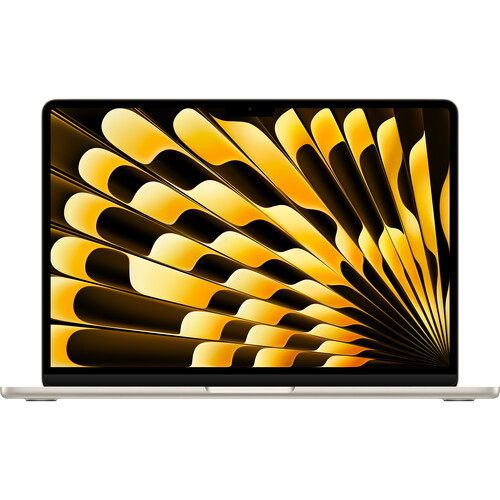
The MacBook most people should buy
The MacBook Air M4 is the MacBook most people should buy right now. The M4 chip offers plenty of performance for most users. Combine that with almost 16 hours of battery life and a bright Retina display, and it's an easy pick.
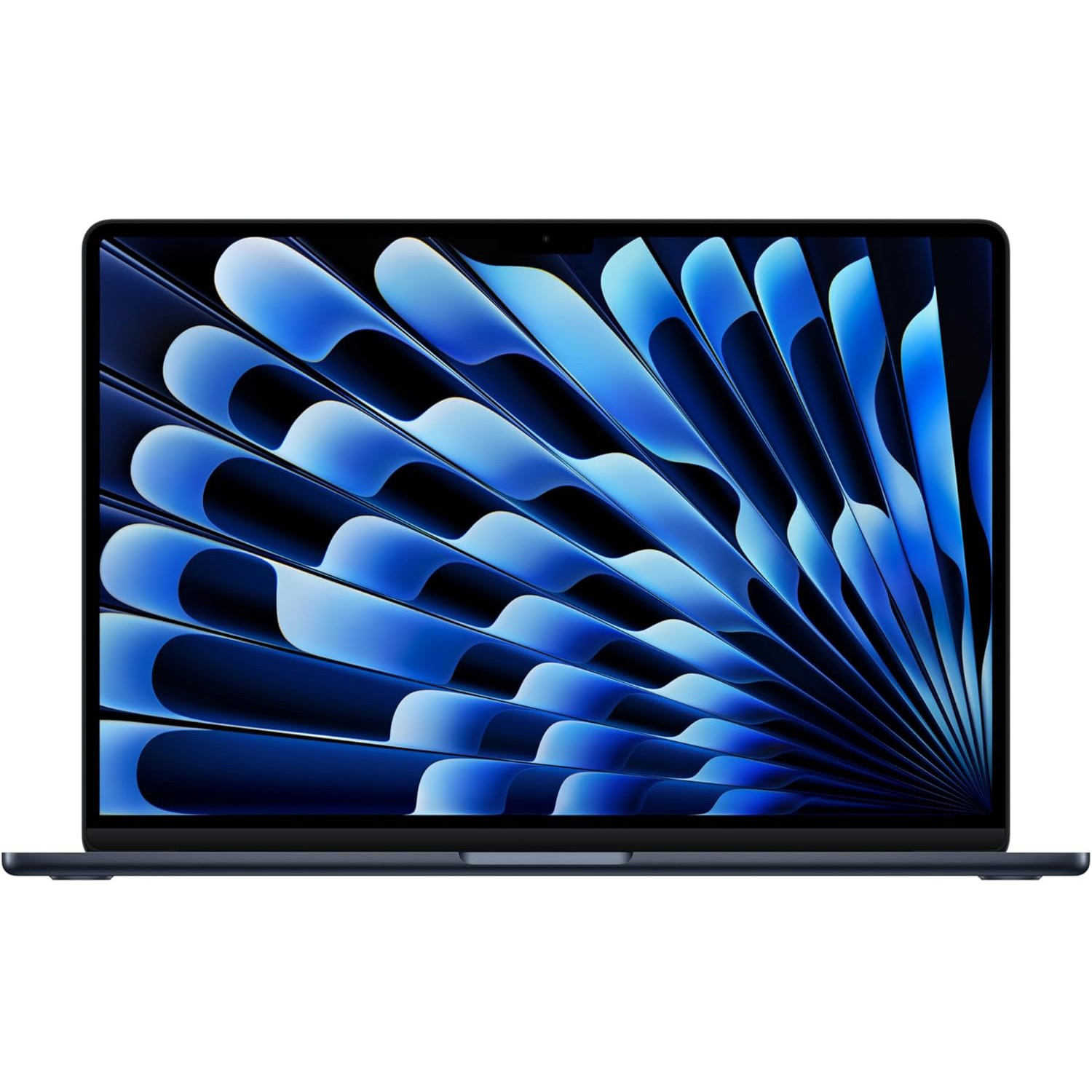
The best affordable big-screen MacBook
The MacBook Air 15 filled a gap in Apple's laptop lineup: a big screen that doesn't cost $2,500+. Sure, it's just an M4 Air with a bigger display, but that's a perfect laptop for many people.
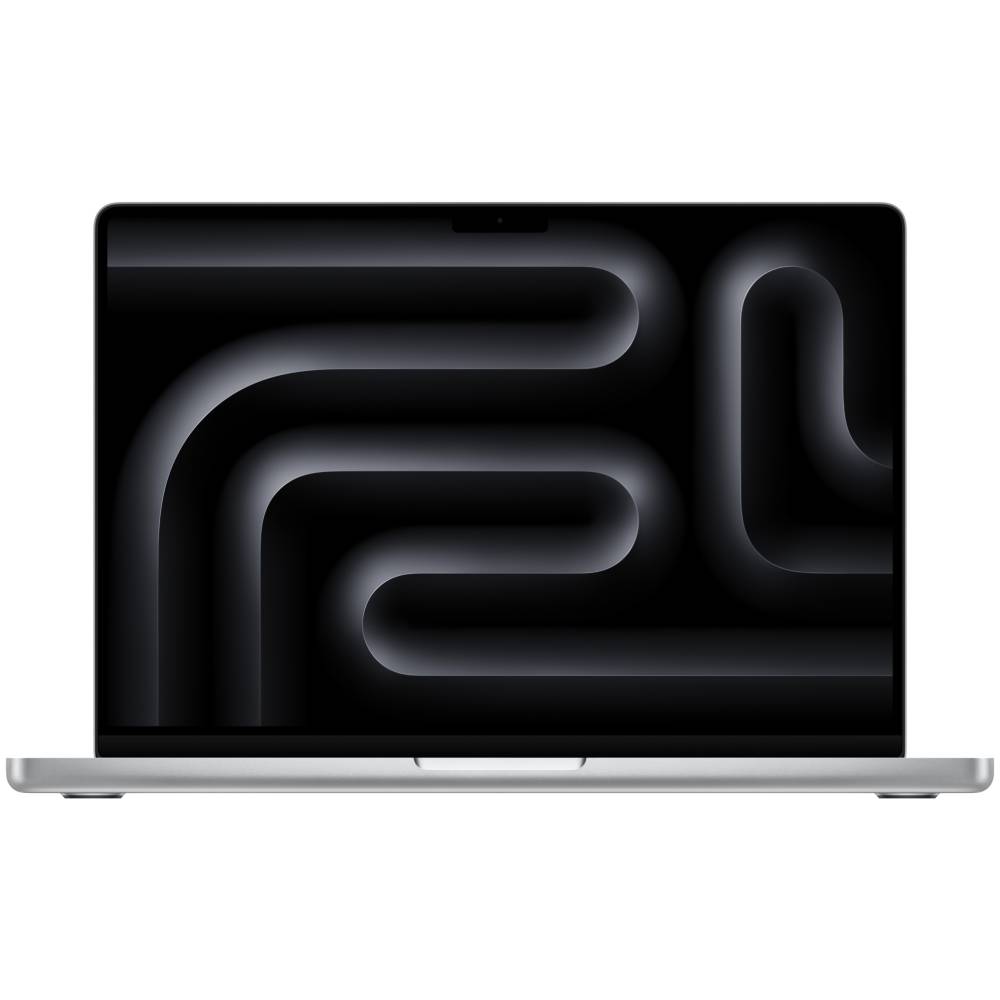
Best MacBook for portable performance
Whether you’re editing photos or videos, creating music, or working on a massive spreadsheet, the MacBook Pro 14 is the way to go. The M4's power and endurance took another leap.
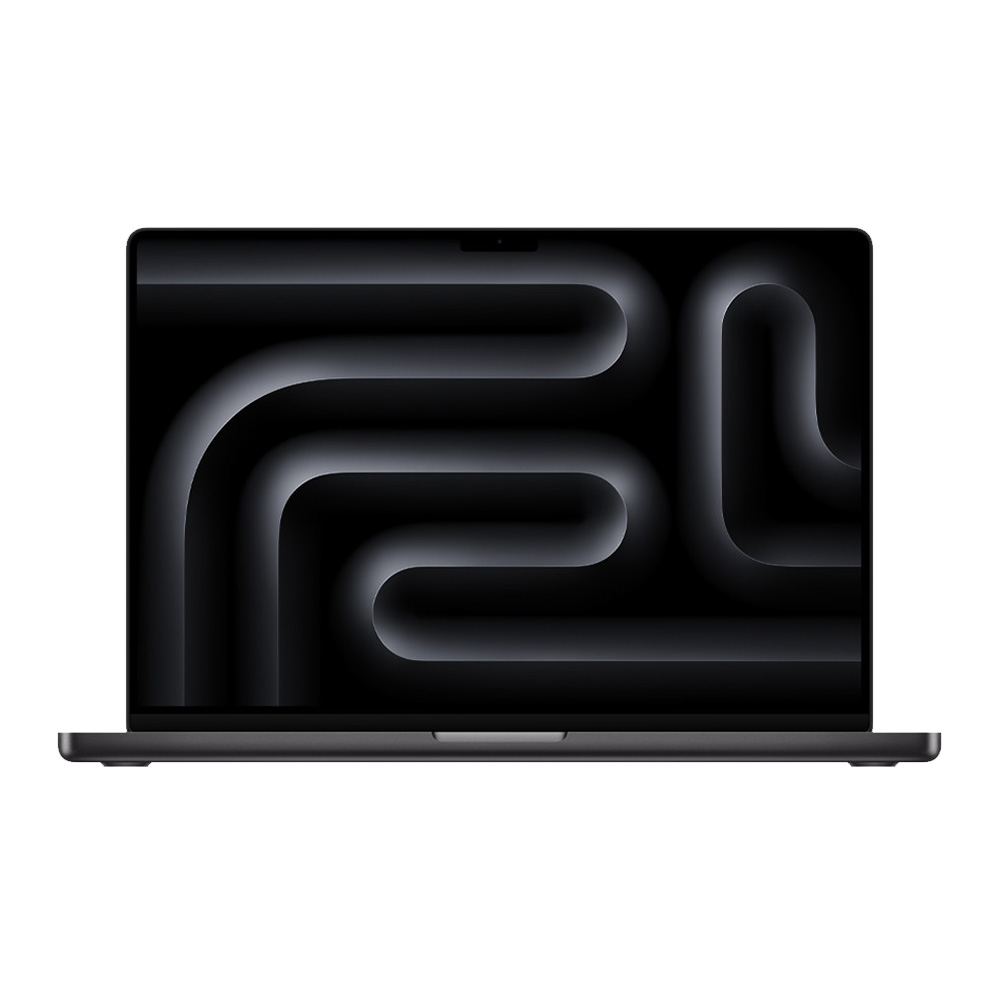
Best MacBook for peak performance
The MacBook Pro 16 with M4 Pro can handle any task. Whether it's the larger display, higher peak performance, or four extra hours of battery life, the Pro 16 earns its premium price.

Sean Riley has covered a wide variety of tech over his 15 years as a journalist and has reviewed over 75 laptops, tablets, and more at Laptop Mag since 2020. Now, as the managing editor, he participates in every laptop review published on Laptop Mag, whether as a reviewer or editor. Sean has used MacBooks since the unibody plastic days and has reviewed every current MacBook Air and MacBook Pro, so he has a wide breadth of experience with Apple laptops to help guide you to the right choice.
MacBook Air (13-inch, M4): Best for most people
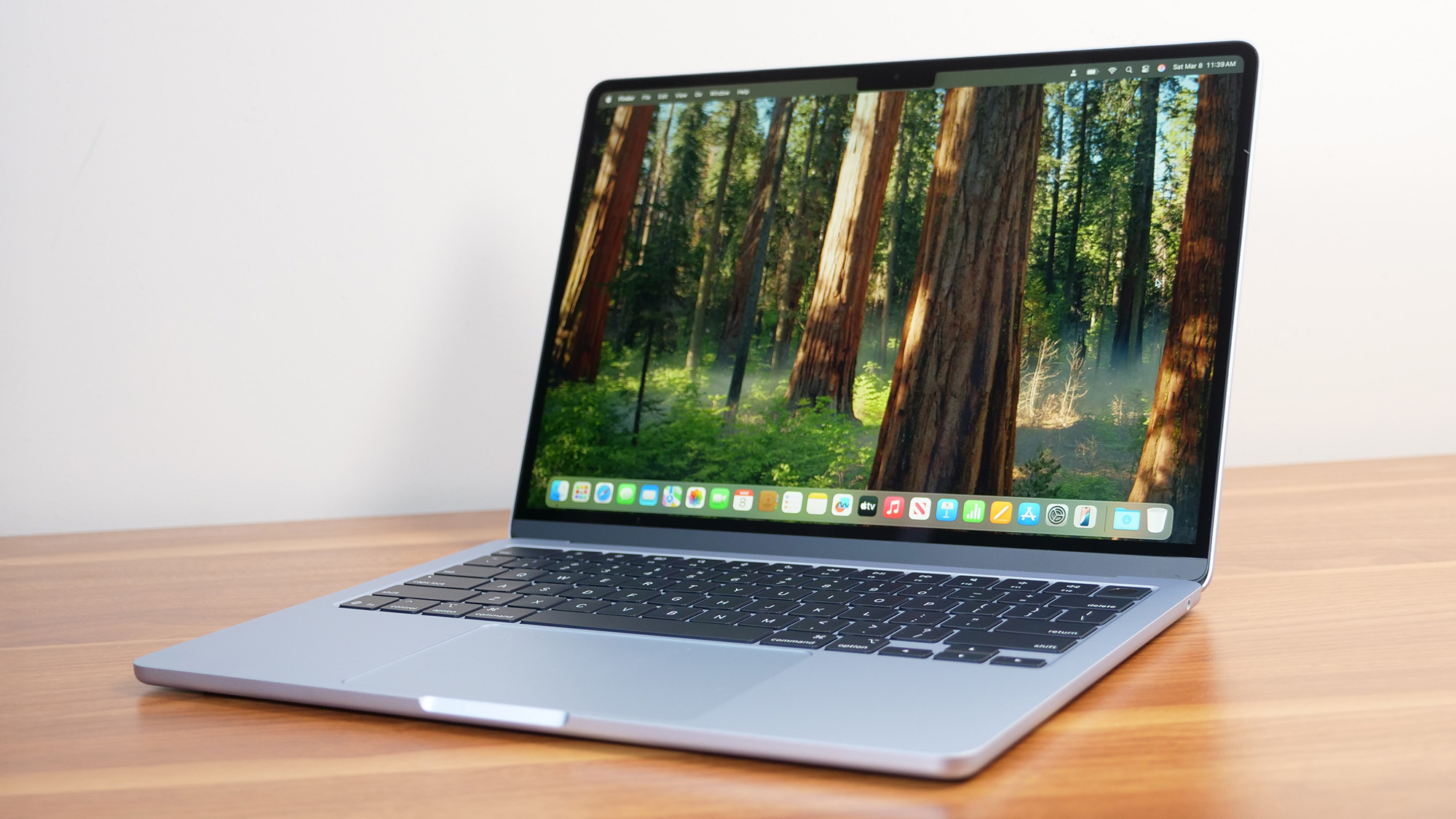
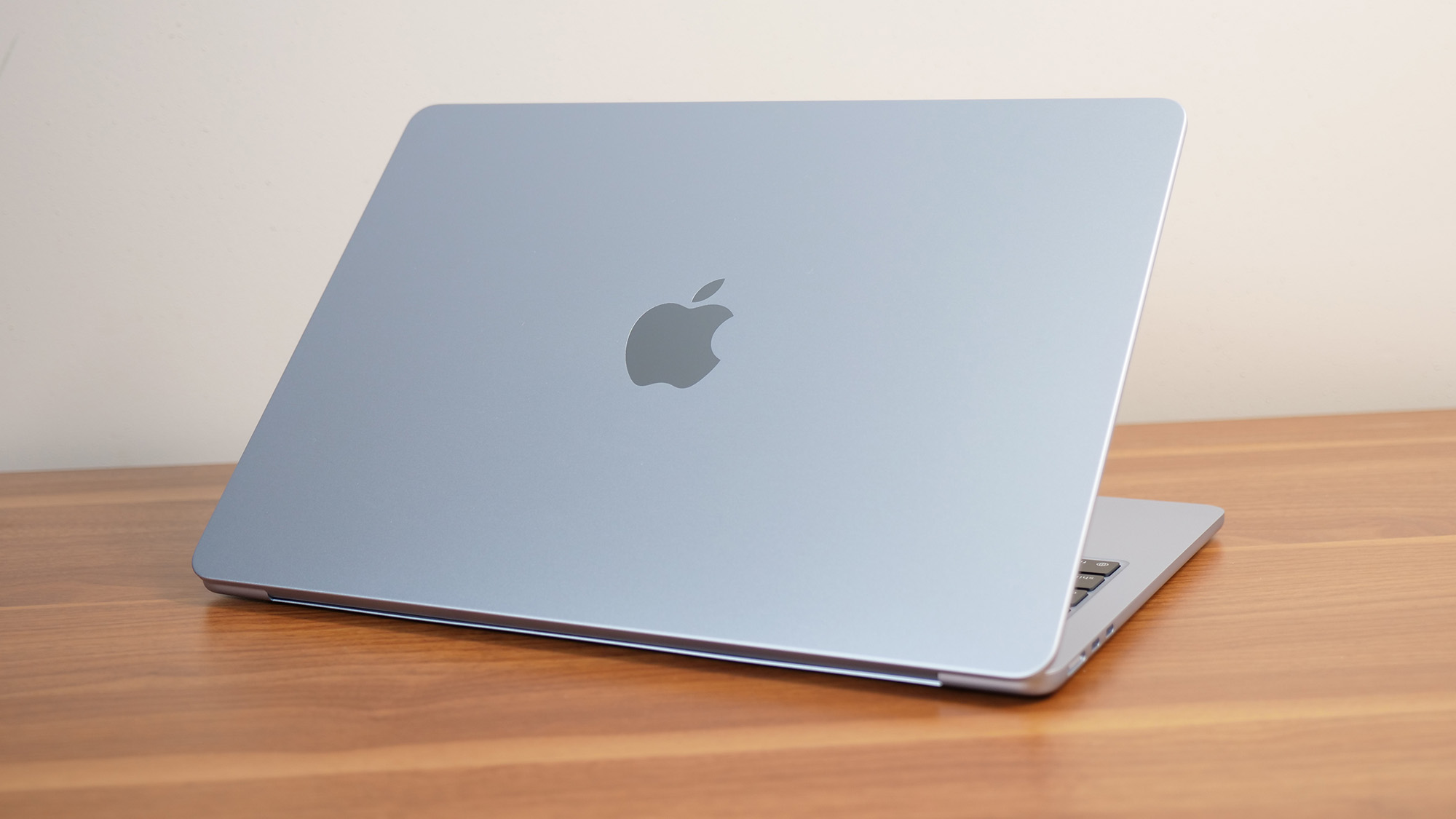
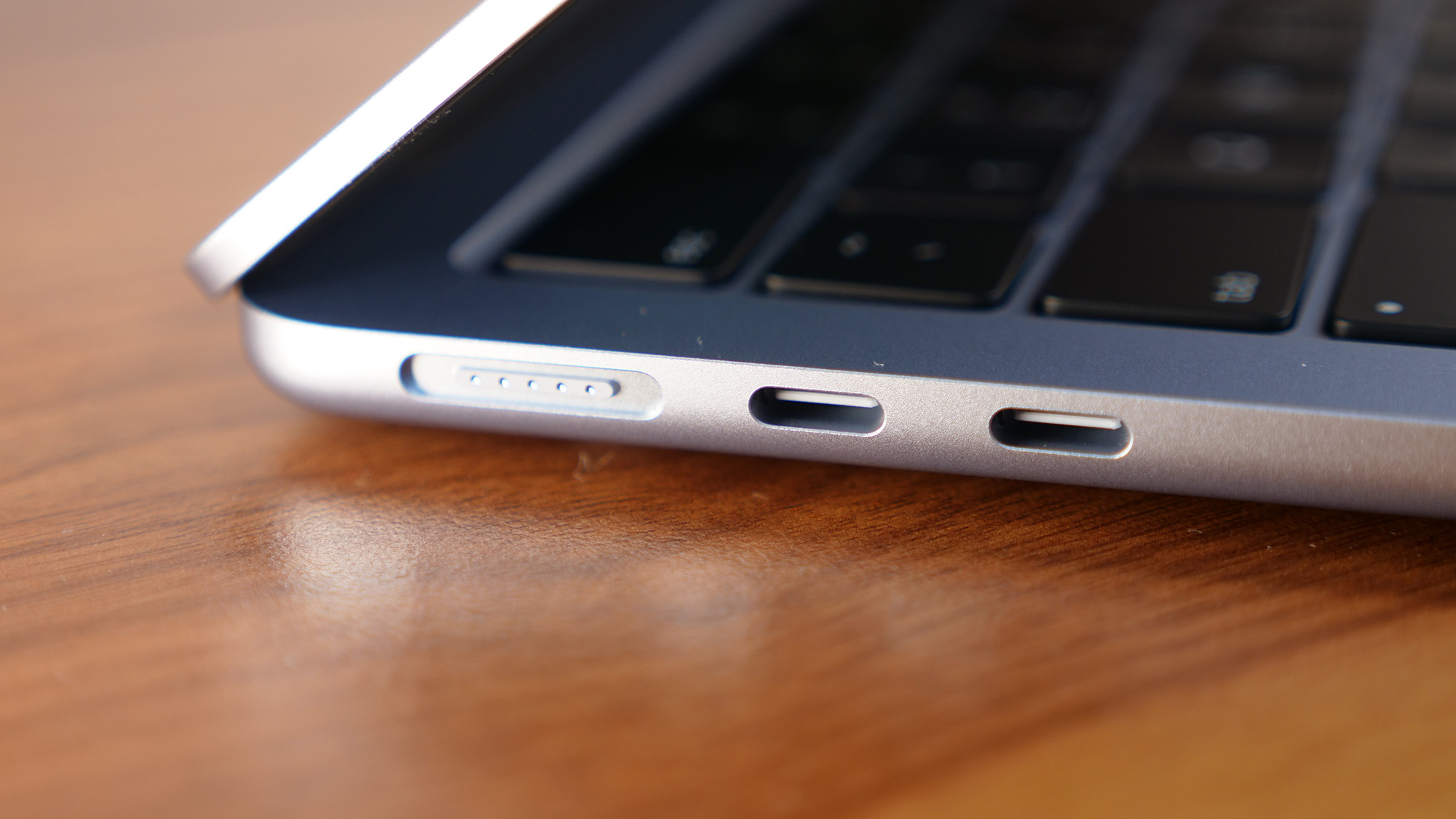
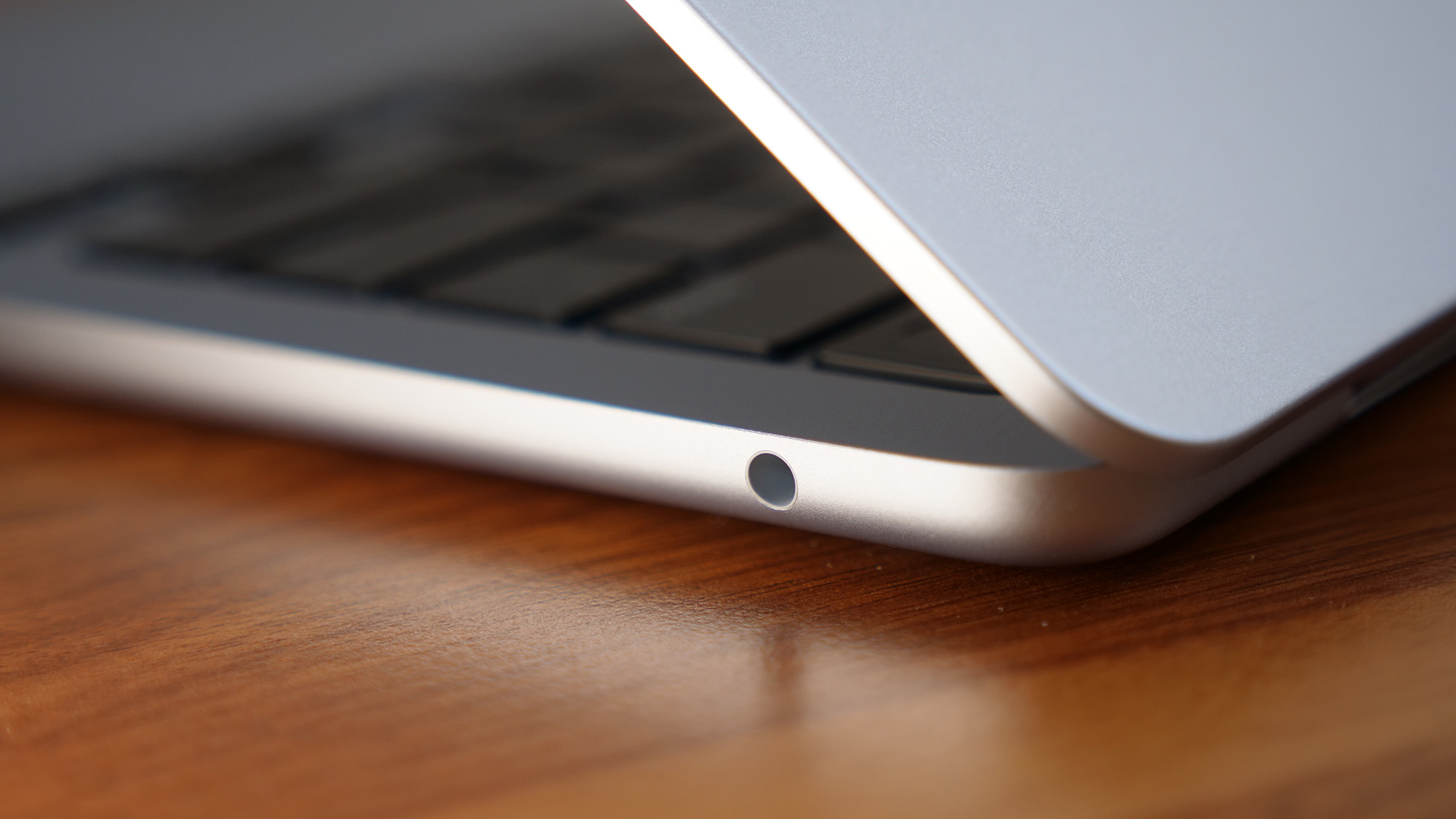

Specifications
Reasons to buy
Reasons to avoid
Pros: While the 13-inch MacBook Air M4 looks no different from its predecessor outwardly, multiple changes make it the best MacBook for most people right now. The $100 price cut helps, returning the base MacBook Air to a $999 starting price.
Combined with the bump to 16GB of RAM on the base model, formerly a $200 upgrade, our recommended configuration for the 13-inch MacBook Air is $300 cheaper than last year's, even without scouting for one of the best MacBook deals.
The MacBook Air's 13.6-inch display is one of the brightest laptops around, and True Tone also ensures excellent color accuracy, but the vibrancy falls short of some of the OLED competition. Rumors of Apple moving to OLED in the future abound, but not yet.
Like its predecessors, the MacBook Air M4 is one of the thinnest laptops at only 0.4 inches. However, unlike many ultraportable laptops, it can keep up with an impressive workload, thanks to the M4 chip. Whether it was our benchmarks or real-world usage, the Air M4 was up for any task.
Looking at the benchmarks, the MacBook Air M4 scored 14,489 on Geekbench 6, easily surpassing the competition. Our Handbrake video transcoding test took 5 minutes and 40 seconds to transcode a 4K video to 1080p. This blows past the mainstream average, but still can't hold up to the MacBook Pro models in similar tests. SSD speeds are among the best we've seen, with 3,456.2 MBps and 3,018.4 MBps in BlackMagic Write and Read tests, respectively.
All that performance prowess doesn't hurt its battery life, either. If finding an outlet can be a challenge during your day, never fear: The Air M4 powered through almost 16 hours of battery life testing in our lab.
Rounding out the additions and upgrades from this year, the new Apple Center webcam is one of the best I've ever tested, the 12MP camera makes you look your best in any lighting.
Cons: So what are the downsides? If you have a lot of peripherals, the pair of Thunderbolt/USB-C ports may be challenging, but at least you have MagSafe 3 to keep both ports free while charging.
While the base $999 price for the MacBook Air 13-inch M4 is reasonable given what you are getting, if you need to upgrade RAM or storage, each jump is another $200, but neither is user-upgradeable, so don't leave yourself short.
Need more screen real estate? Look no further than the 15-inch MacBook Air M4. It mirrors all of the strengths of its smaller sibling but with a larger 15.3-inch display.
See our full 13-inch MacBook Air M4 review.
See our full 15-inch MacBook Air M4 review.
Click to view data in table format
| Header Cell - Column 0 | Apple MacBook Air 13-inch M4 | Lenovo Yoga Slim 7x | MacBook Air 13-inch M3 | Asus Zenbook 14 OLED (Q425) |
|---|---|---|---|---|
Geekbench 6 (Higher is better) | 14,849 | 13,750 | 12,087 | 12,908 |
Handbrake conversion (Lower is better) | 5.40 | 5.16 | 7.40 | 6.17 |
SSD Transfer rate (Higher is better, MBps) | Row 2 - Cell 1 | 1416 | Row 2 - Cell 3 | 1279.88 |
BlackMagic Write (SSD speed) | 3,456.2 | 3,253.3 | 3,058.8 | Row 3 - Cell 4 |
BlackMagic Read (SSD speed) | 3,018.4 | 3,652.6 | 3,030.7 | Row 4 - Cell 4 |
Heat (Degrees Fahrenheit) | 85.2 | 86.0 | 83.5 | 111.9 |
Battery life (Higher is better) | Row 6 - Cell 1 | 14.14 | 15.13 | 12.21 |
Display brightness (Higher is better) | 463 | 464 | 476 | 354 |
sRGB color gamut (Higher is better) | 112% | 219% | 110% | 115% |
DCI-P3 color gamut (Higher is better) | 79.6% | 155.4% | 77.8% | 81.7% |
Color accuracy (Lower is better) | 0.2 | 0.37 | 0.21 | 0.21 |
Sid Meier's Civ VI: Gathering Storm (1080p) | 40.65 | 20.87 | 41.39 | 32.5 |
Borderlands 3 (1080p) | 20.85 | Row 12 - Cell 2 | 17.08 | Row 12 - Cell 4 |
Shadow of the Tomb Raider | 31 | Row 13 - Cell 2 | 25 | Row 13 - Cell 4 |
MacBook Air (15-inch, M4): Best affordable big screen
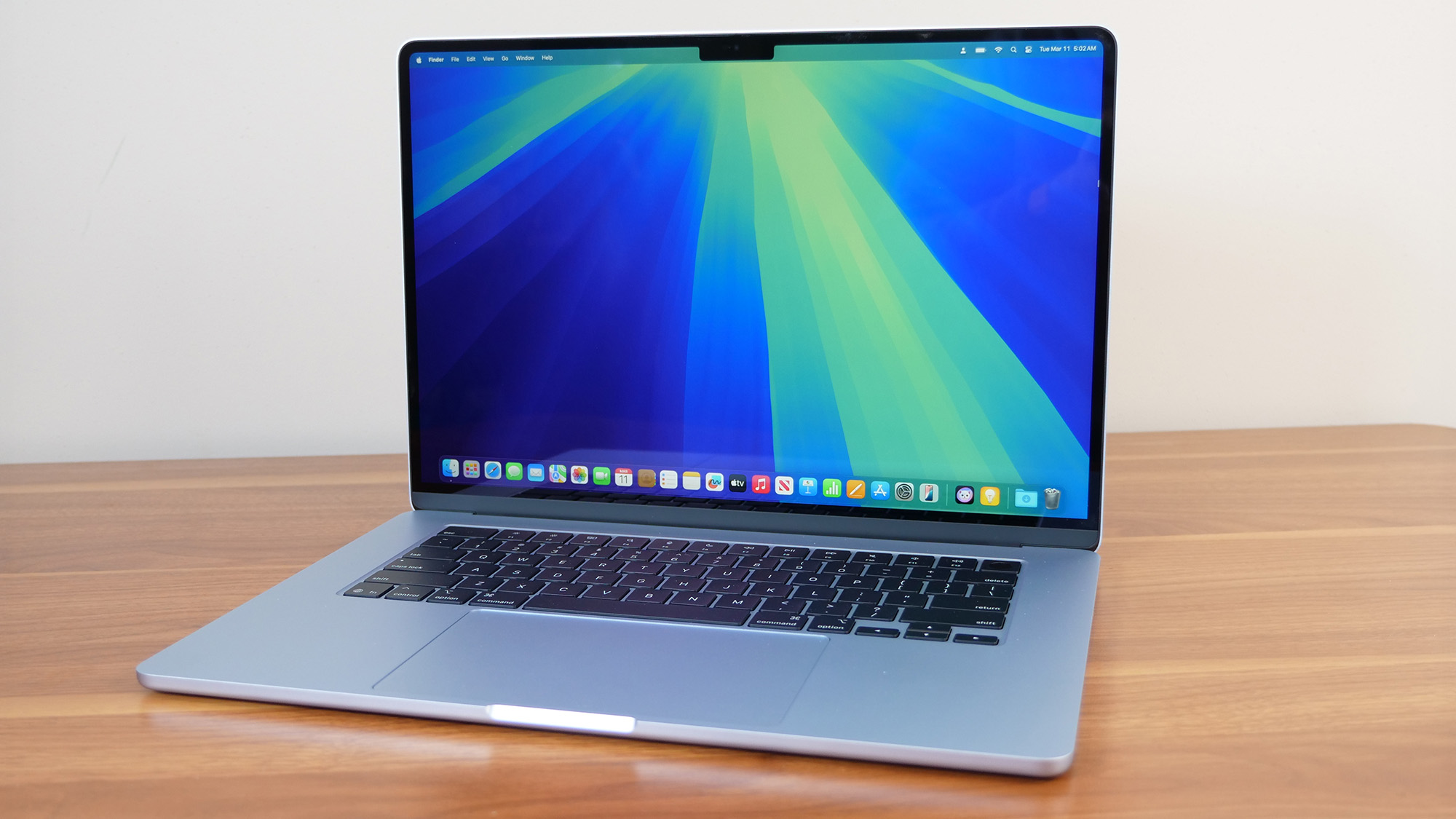
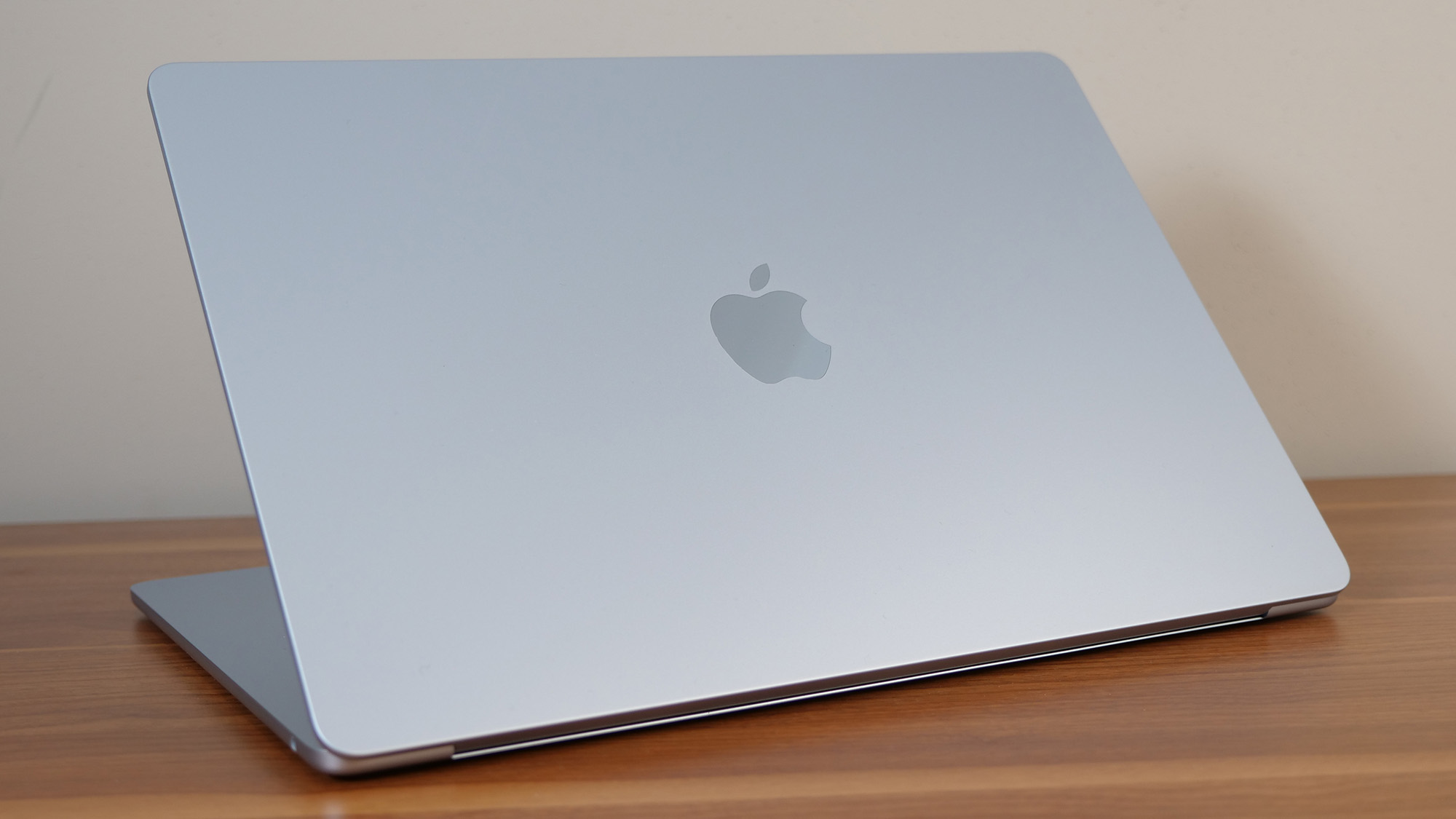
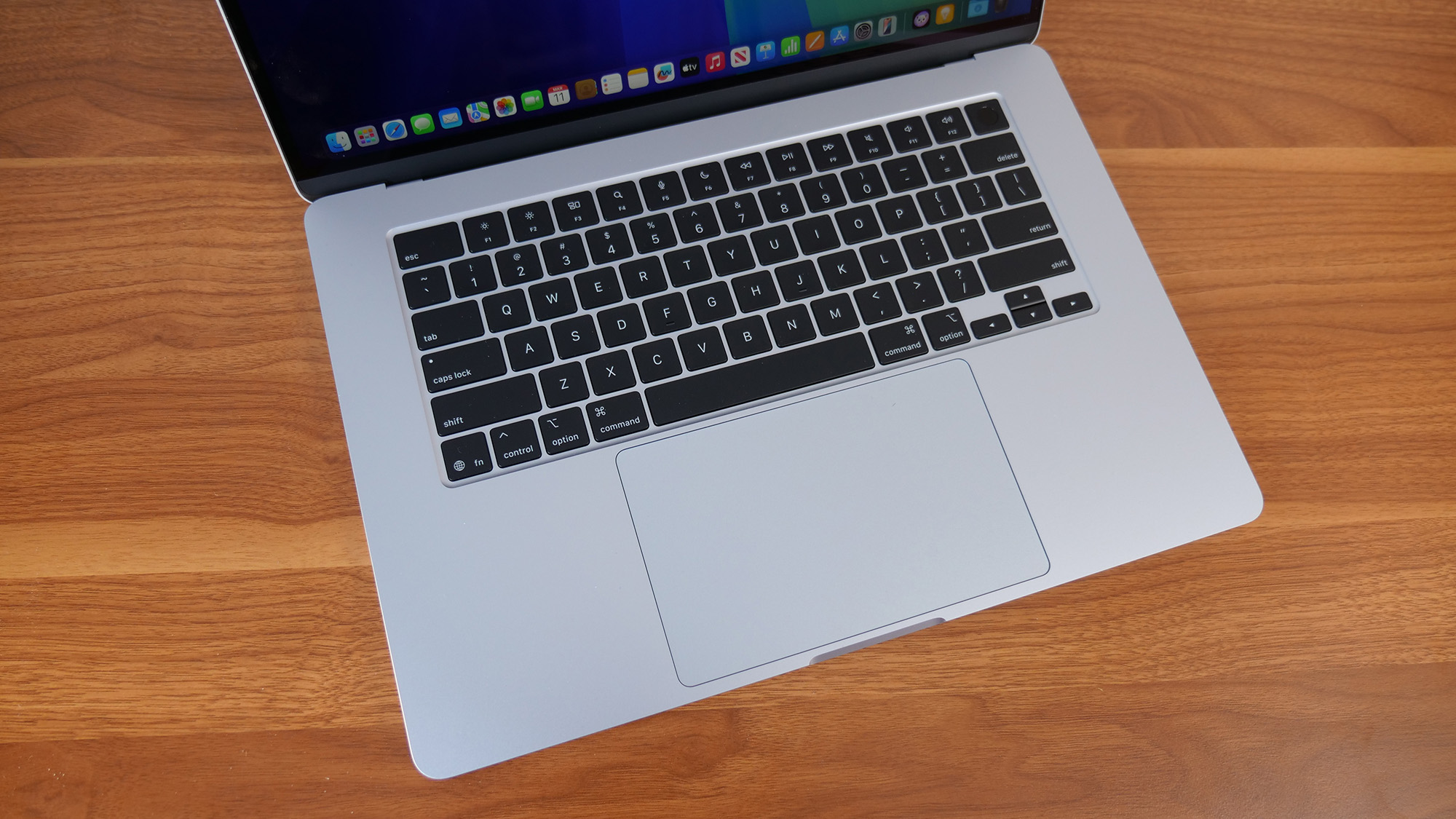
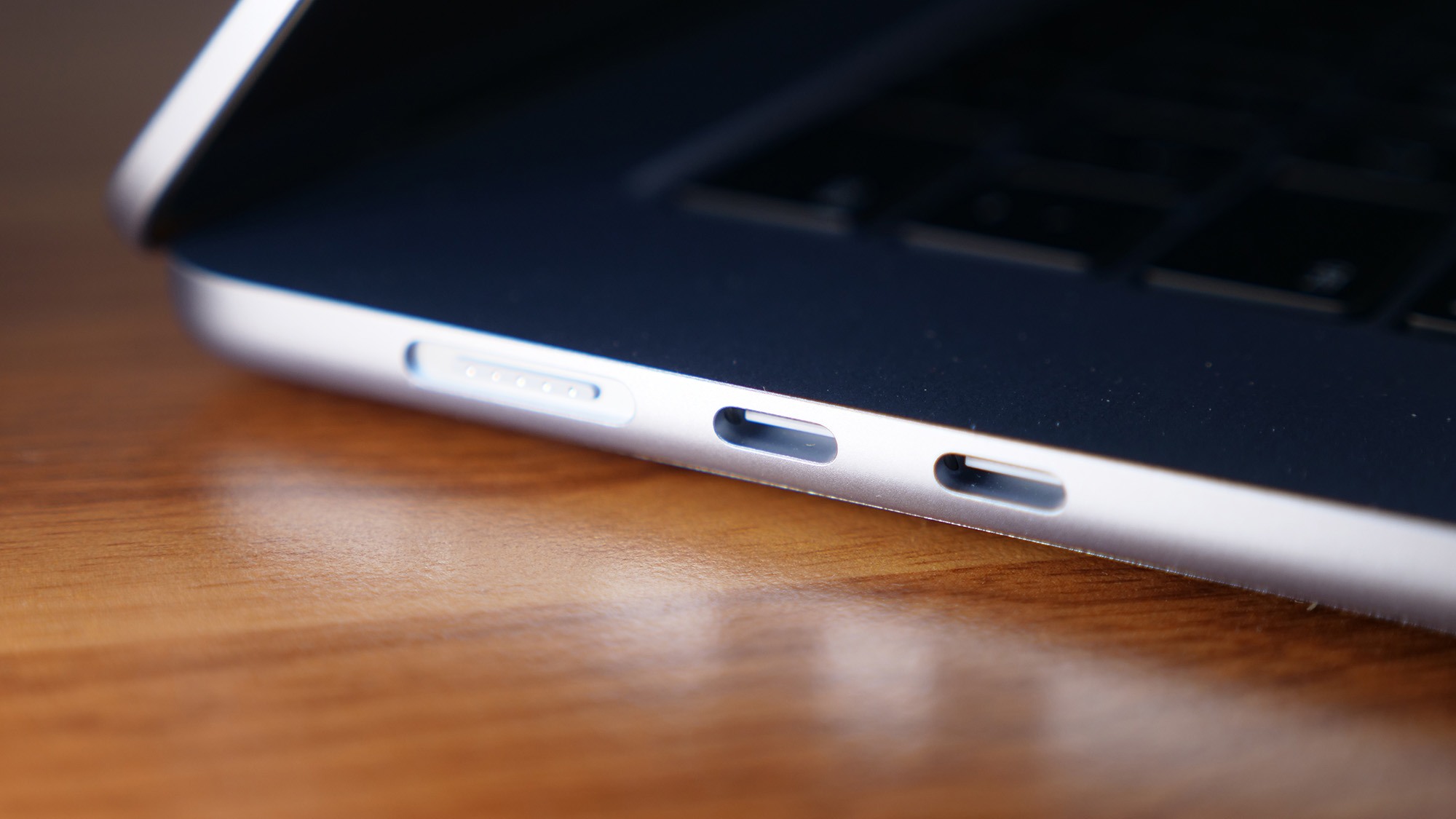
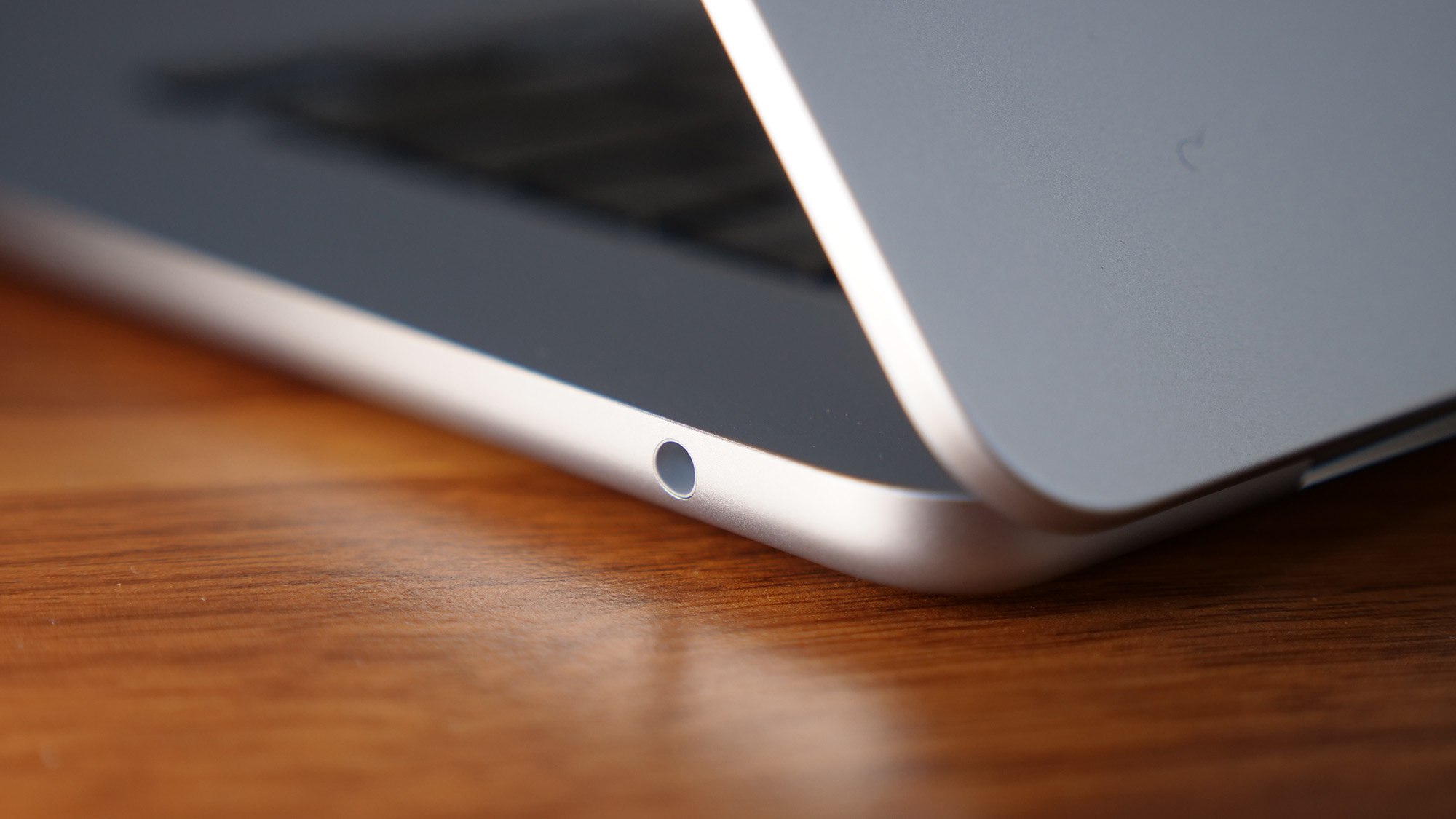
Specifications
Reasons to buy
Reasons to avoid
Pros: Getting that big 15.3-inch display on a MacBook for as low as $1,199 is hard to pass up, considering that for years, a large screen MacBook was at least $2,499. While it lacks the 120Hz refresh rate of the Pro models, Apple didn't skimp on the display, as it offers an excellent 476 nits of brightness in our testing.
At 3.3 pounds and just 0.45 inches thick, it's a strong contender for the best business laptops or best student laptops for anyone who values a larger laptop that won't weigh down their laptop bag. Thanks to 15 hours and 14 minutes of battery life in our testing, it also won't call it quits on you early.
It features the same M4 chip as the 13-inch Air M4. It delivers nearly identical performance results on many tasks, although sustained tasks like video editing tip in favor of the 15-inch model, presumably due to improved thermal performance.
Cons: Not many. I find the port situation slightly more frustrating on the 15-inch Air as it features the same pair of Thunderbolt 3/USB 4 ports, MagSafe charger, and headphone/mic jack as the much smaller MacBook Air 13-inch. However, most of us who need more ports have long ago added a USB-C hub or laptop docking station to our assortment of gear.
See our full MacBook Air 15-inch M4 review.
Click to view data in table format
| Header Cell - Column 0 | MacBook Air 15-inch M4 | Asus Zenbook S 14 (UX5406) | MacBook Air 15-inch M3 | Lenovo Yoga 9i (Gen 9) |
|---|---|---|---|---|
Geekbench 6 (Higher is better) | 14,921 | 11,157 | 12,052 | 12,455 |
Handbrake conversion (Lower is better) | 4.57 | 8.28 | 6.30 | 5.10 |
SSD Transfer rate (Higher is better, MBps) | Row 2 - Cell 1 | 1007.29 | Row 2 - Cell 3 | 1016.42 |
BlackMagic Write (SSD speed) | 3,335.1 | 2,513.5 | 3,167.1 | Row 3 - Cell 4 |
BlackMagic Read (SSD speed) | 3,012.5 | 2,590.1 | 2,968.2 | Row 4 - Cell 4 |
Heat (Degrees Fahrenheit) | 90.0 | 97.7 | 83.5 | 95.0 |
Battery life (Higher is better) | 15.14 | 13.51 | 15.03 | 7.24 |
Display brightness (Higher is better) | 476 | 342 | 482 | 357 |
sRGB color gamut (Higher is better) | 118% | 116% | 109% | 192% |
DCI-P3 color gamut (Higher is better) | 83.5% | 82.0% | 77.5% | 136.3% |
Color accuracy (Lower is better) | 0.22 | 0.21 | 0.3 | 0.27 |
Sid Meier's Civ VI: Gathering Storm (1080p) | 44.735 | 48 | Row 11 - Cell 3 | 34.97 |
Borderlands 3 (1080p) | 19.38 | 23.66 | 17.3 | Row 12 - Cell 4 |
Shadow of the Tomb Raider | 31 | 19 | Row 13 - Cell 3 | Row 13 - Cell 4 |
MacBook Pro (14-inch): Best for creative pros on the go
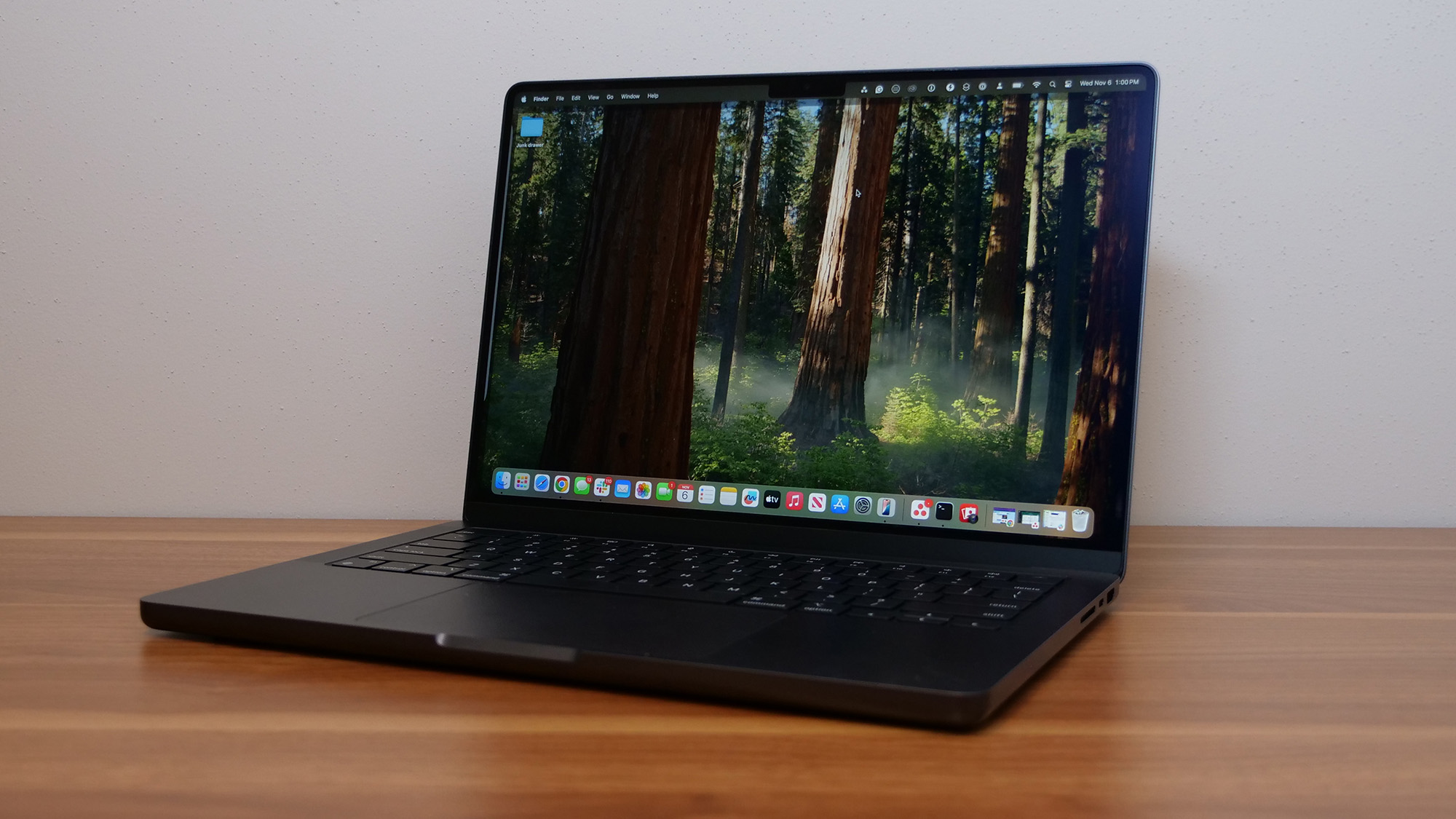
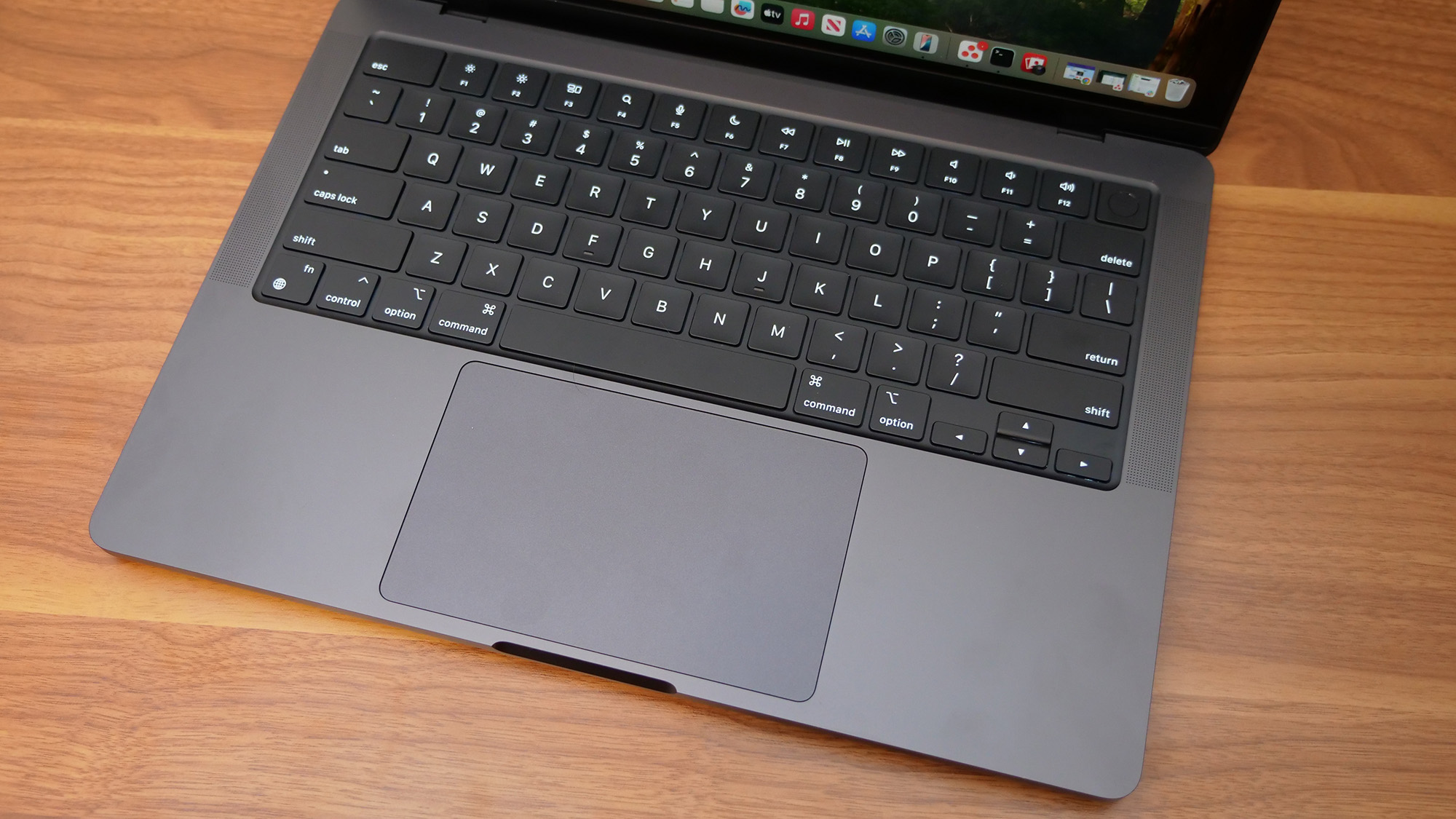
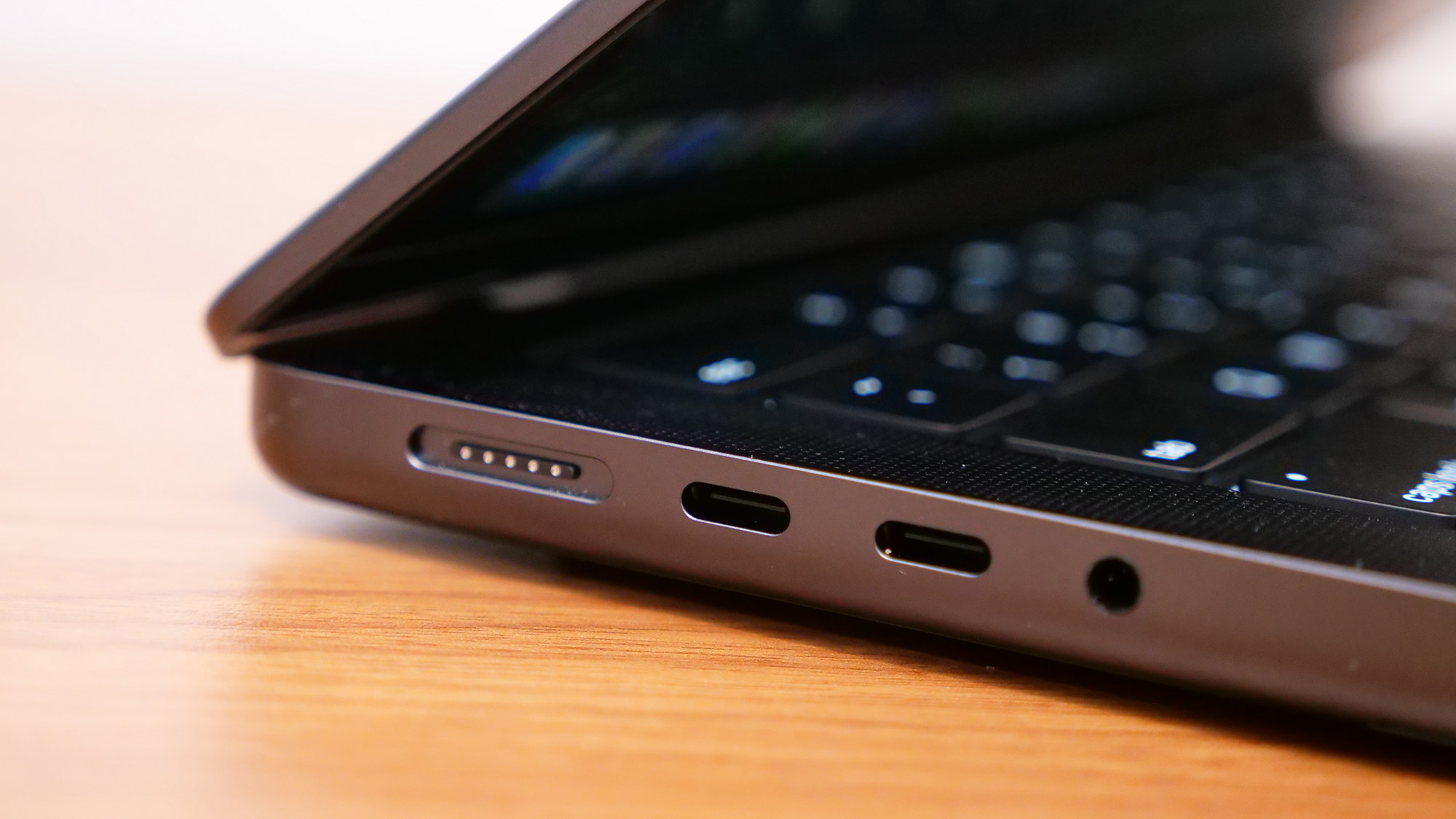
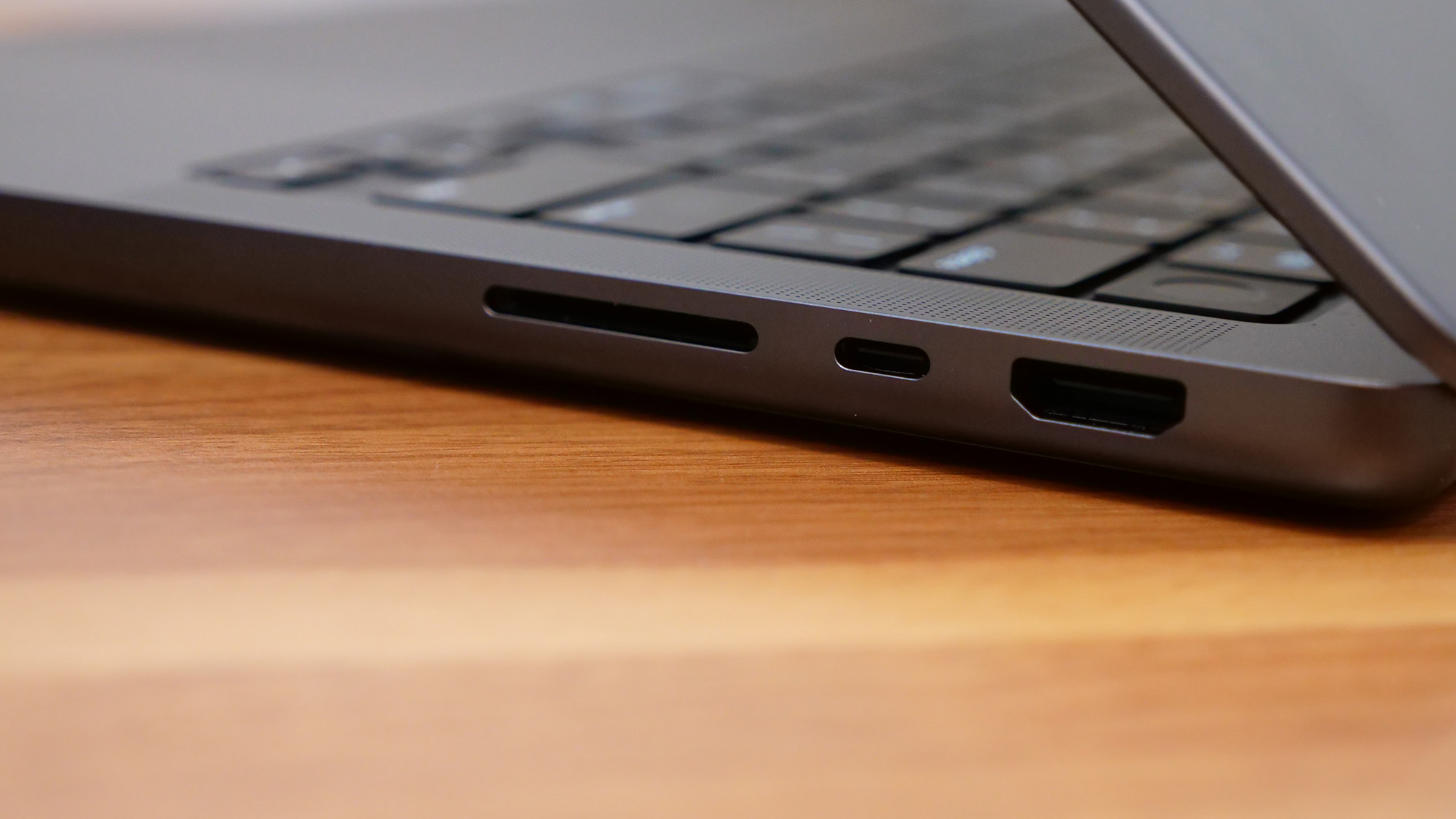
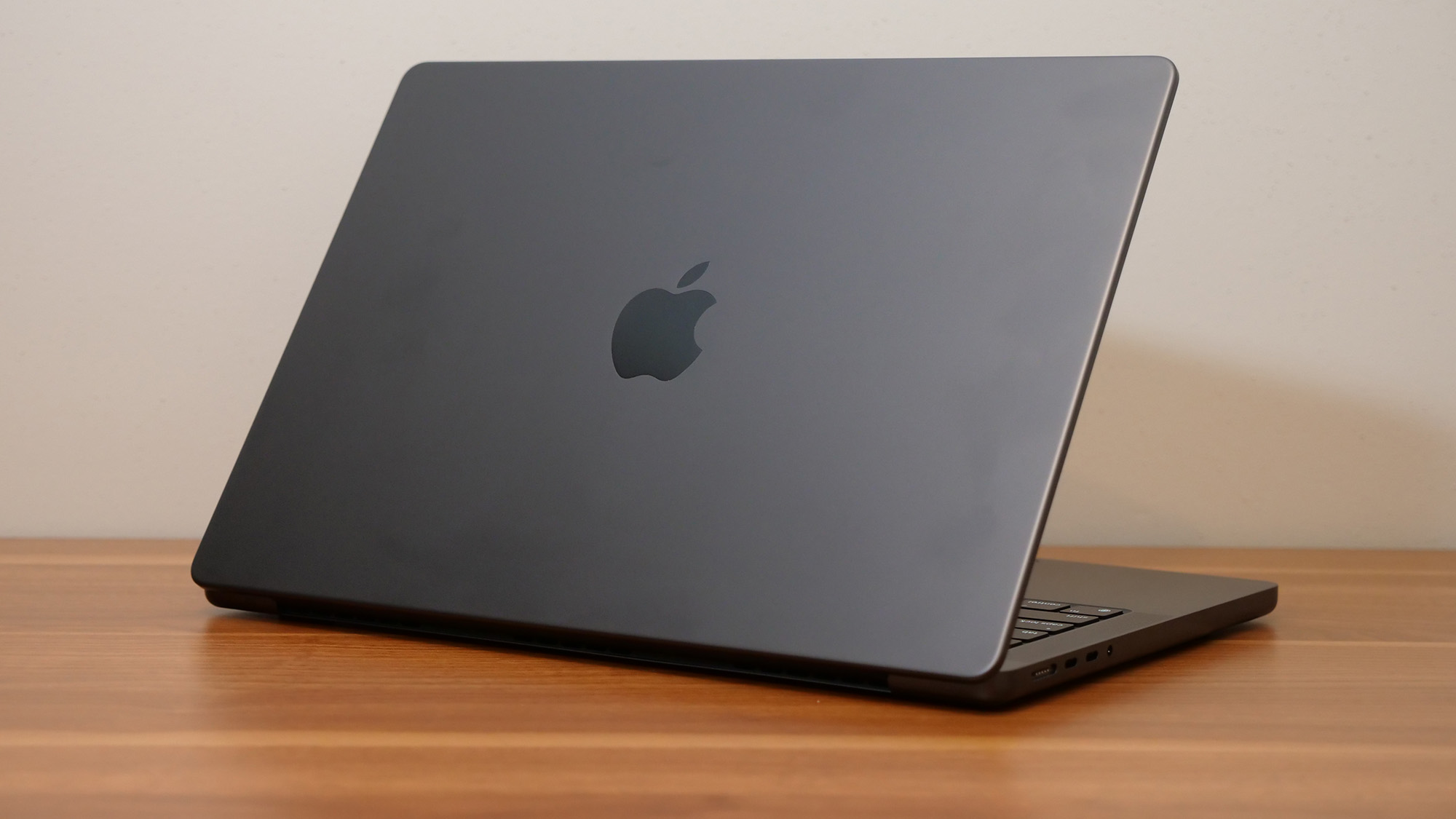
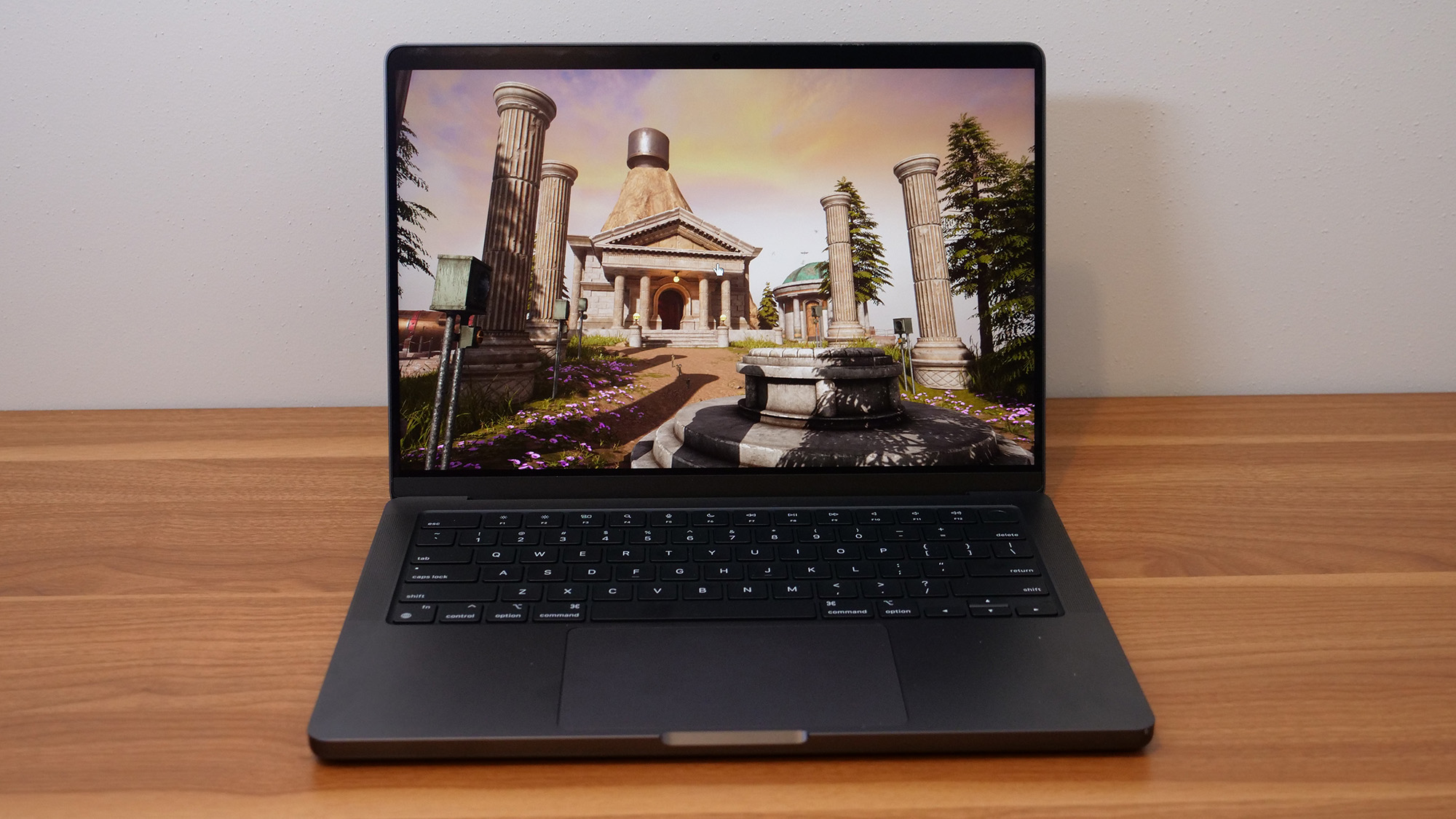
Specifications
Reasons to buy
Reasons to avoid
Pros: The base MacBook Pro 14 with its M4 chip is an excellent value for those looking for more power than the Air can offer without spending upwards of $2,000. It's also important to note when comparing against the Air that you start at 512GB of storage, a $200 upgrade for Air buyers. For most users, the base M4 will get the job done, but if time is money for you, then the M4 Pro and M4 Max processors Apple are among the fastest, most power-efficient chips ever built for portable computing.
The base models at both the M4 and M4 Pro levels are better than ever, with the M4 Pro outperforming the M3 Max in many metrics, so consider that before snapping up a deal on the older models. While the base model will be more than enough for most users, you can configure the M4 Max up to 128GB of RAM and an 8TB SSD. Battery life was tested at 18 hours and 32 minutes for the standard M4 configuration, and we would expect fairly similar results from the M4 Pro and M4 Max.
That redesign from 2021 still feels fresh with the 14.2-inch, 3024 x 1964-pixel Liquid Retina XDR mini-LED display with a 120Hz refresh rate. At 556 nits, this panel is one of the brightest laptop screens ever and both color accurate and vivid enough for creative work.
At 12.3 inches x 8.7 x 0.6 inches and 3.4 pounds, the 14-inch MacBook Pro remains portable despite the power it packs underneath the hood.
The 12MP Center Stage camera is another notable upgrade for the M4 MacBook Pros, it's the best webcam we've ever seen on a laptop with outstanding color accuracy while holding up well in differing lighting conditions. Add in Touch ID, a six-speaker setup, and a comfortable keyboard and the 14-inch MacBook Pro has a lot going for it.
Cons: So, what's wrong with the laptop? I'll be honest, not much. It would be great to get Face ID support for facial recognition login since that's been available on Windows laptops for years. While your mileage may vary, I find the vent placement makes the MacBook Pro uncomfortable to hold in certain orientations, which isn't a major issue, but it's something I haven't encountered on a MacBook previously.
See our full MacBook Pro 14 M4 review.
Click to view data in table format
| Header Cell - Column 0 | Apple MacBook Pro 14-inch (M4, 2024) | Apple MacBook Pro 14-inch (M3, 2023) | HP Spectre x360 (14-inch, 2024) | Asus Zenbook S14 UX5406S | Premium laptops average |
|---|---|---|---|---|---|
Geekbench 6 (Higher is better) | 15,114 | 11,968 | 12,358 | 11,157 | 10,492 |
Handbrake conversion (Lower is better, MM.SS) | 04:28 | 05:38 | 07:30 | 08:28 | 06:18 |
Battery life (HH.MM) | 18:32 | 17:16 | 11:01 | 13:51 | 13:23 |
DCI-P3 Color Gamut (Higher is better) | 80.2 | 81.3 | 85.8 | 82 | 84.7 |
Display Brightness (Nits) | 556.6 | 558 | 366 | 555 | 434 |
MacBook Pro 16-inch: Best for peak performance
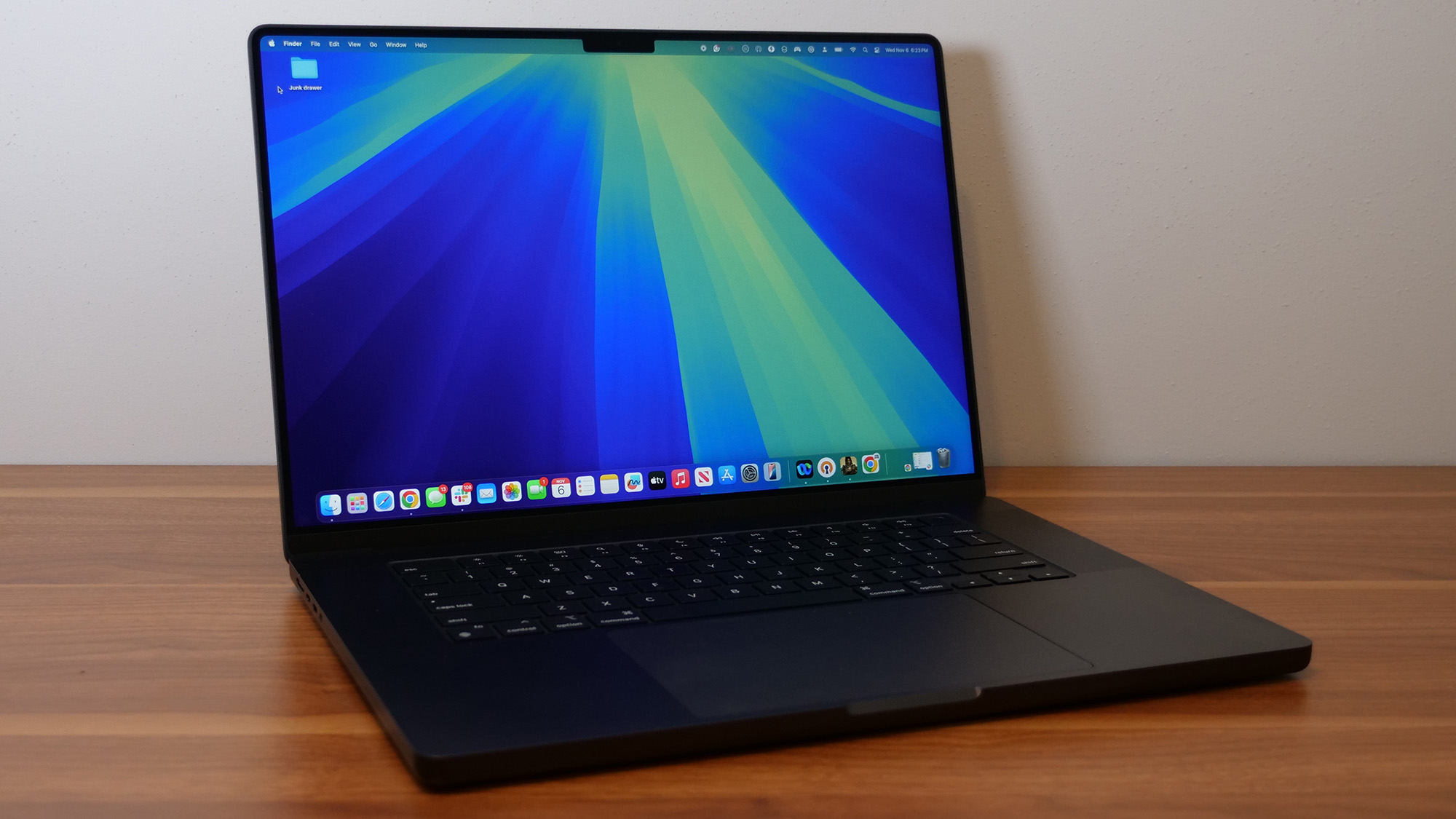
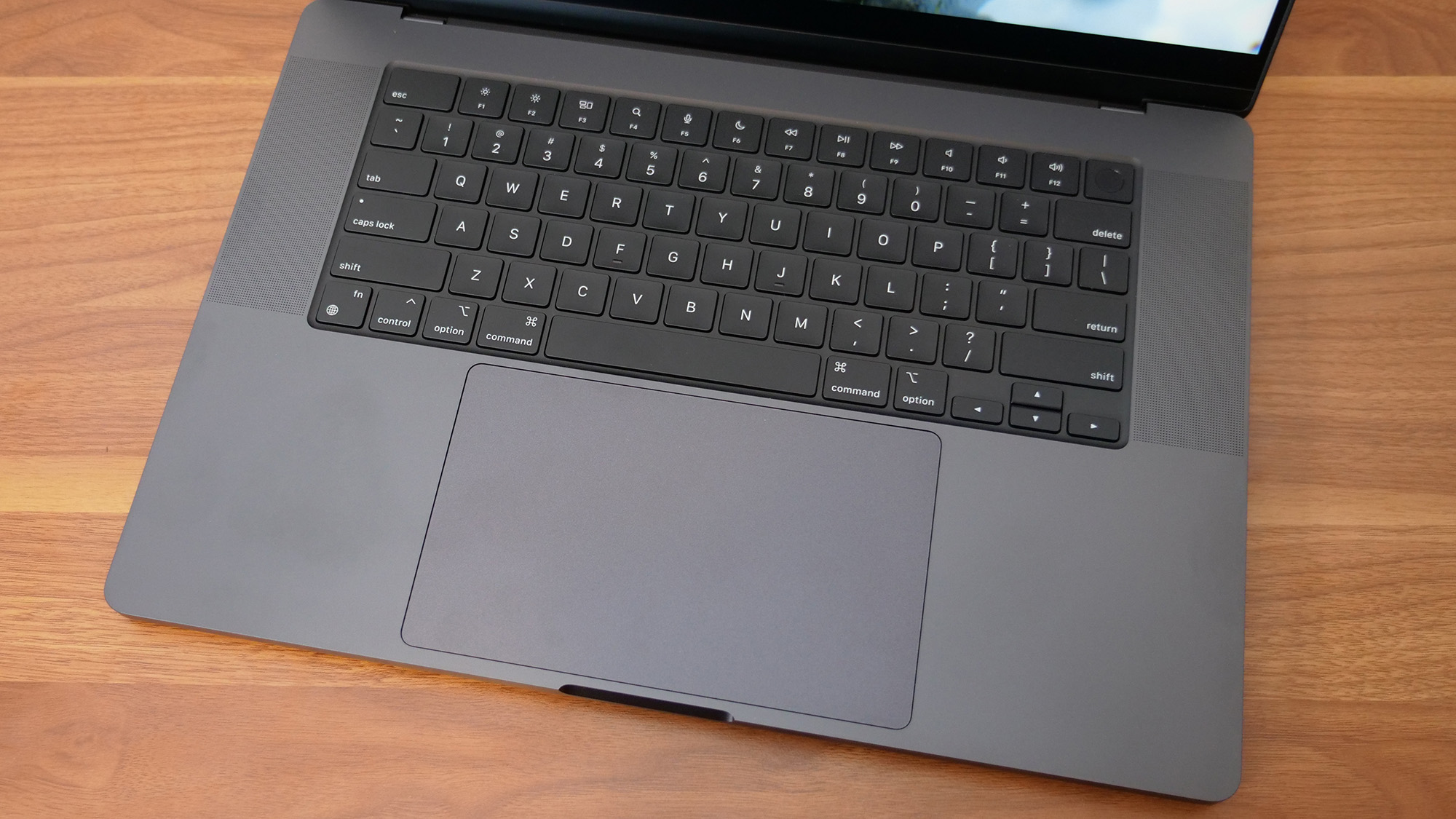
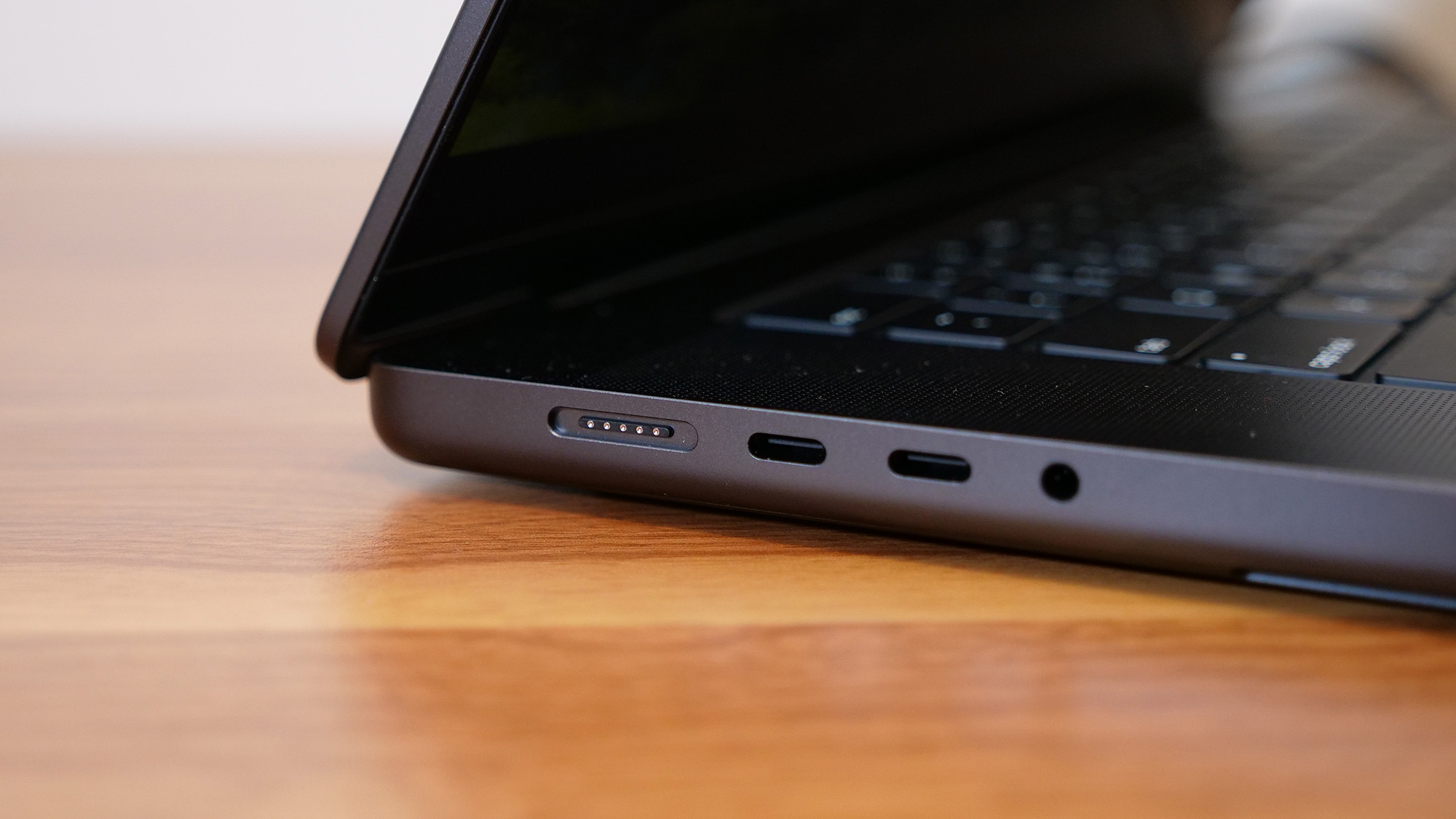
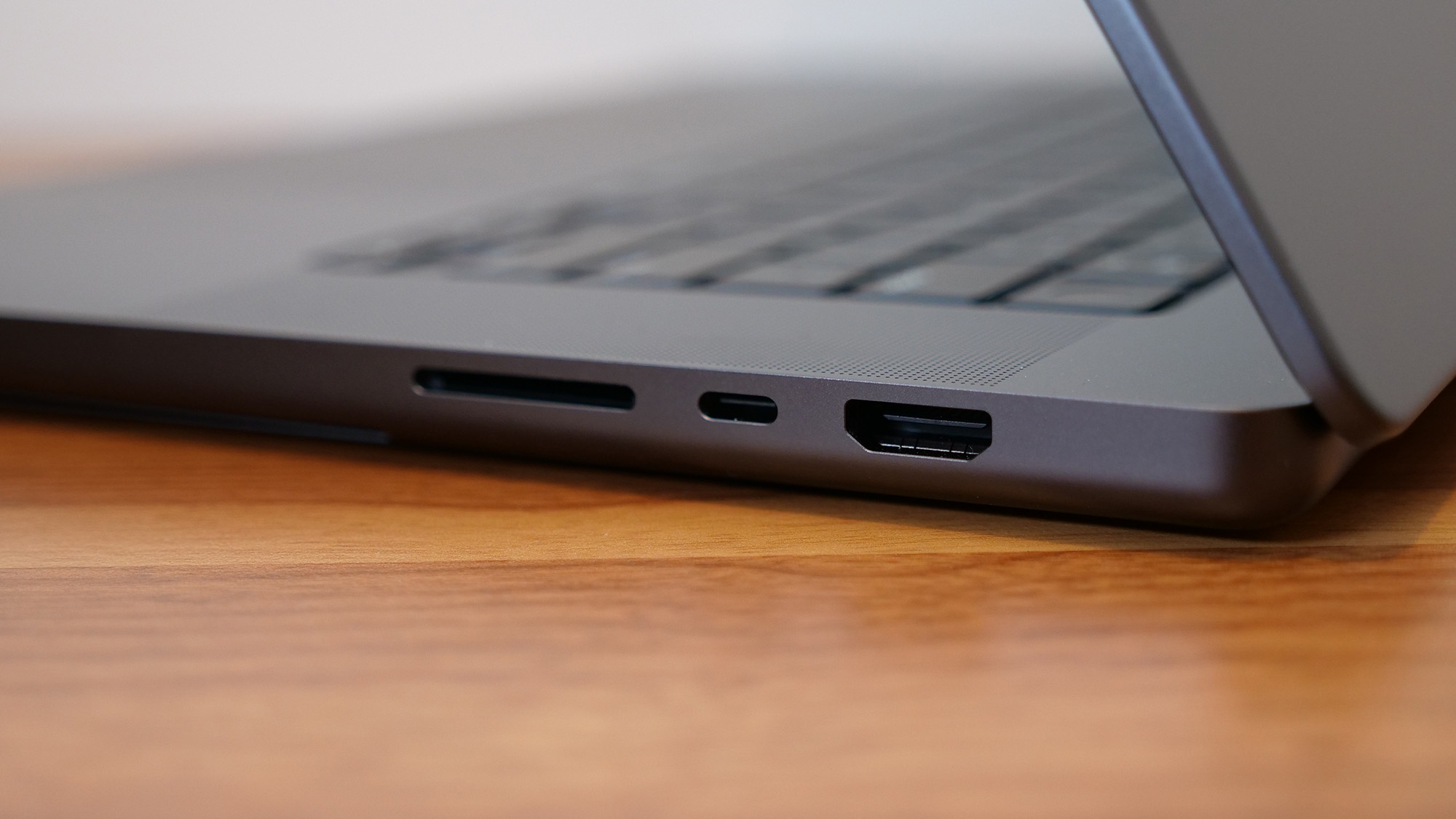
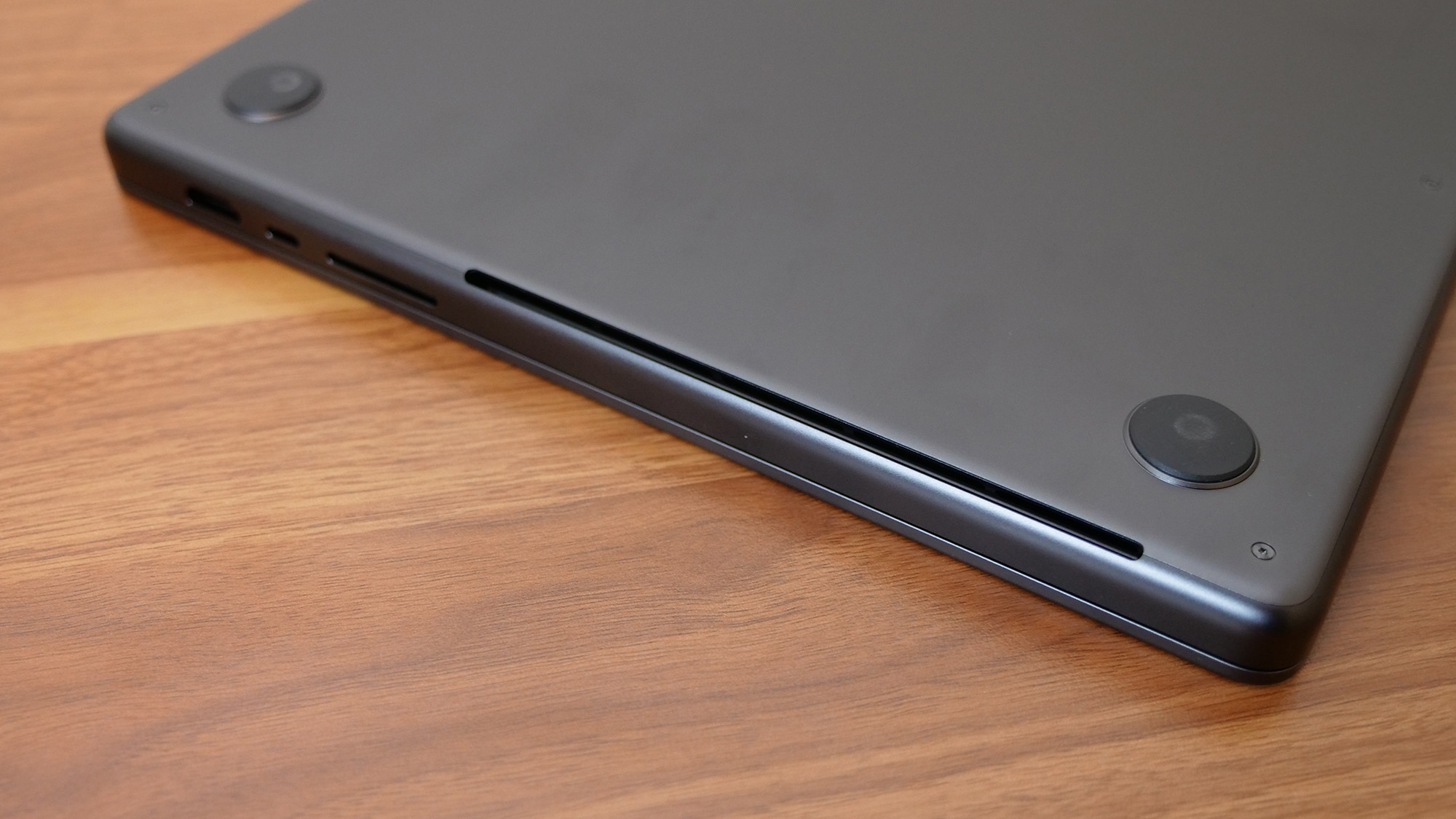
Specifications
Reasons to buy
Reasons to avoid
Pros: This MacBook Pro has everything we love about the 14-inch MacBook Pro but with a large 16-inch display. It has the same M4 Pro and M4 Max chip options along with up to a ludicrous 128GB of memory and up to an 8TB SSD. Battery life is even better, at 20 hours and 46 minutes in our testing, our second-longest result ever and the longest ever for a MacBook. Given the sky-high performance benchmarks, that battery life is almost unbelievable, I've speculated before that Apple has a secret pocket dimension in the MacBook Pro chassis, and I'm still not counting that out as a possibility.
If you plan to keep your laptop for 5-7 years or more and particularly are doing creative work or other work that requires data transfers between your laptop and either an SSD or other hardware, then the 16-inch MacBook Pro offers another advantage over its smaller Pro sibling, Thunderbolt 5 ports. While there is little to take full advantage of the new standard at the moment, Thunderbolt 5 docks, external SSDs, and more are starting to arrive and will pick up over the next 12 months.
Cons: You can get most of what is available in the 16-inch MacBook Pro in the 14-inch model for $500 less. If you need the larger panel or Thunderbolt 5 support, then get the 16-inch MacBook Pro, but if that's not crucial, there is little reason to pay up for the larger laptop.
Also, at 14 x 9.8 x 0.66 inches and 4.7 pounds, the 16-inch MacBook Pro is considerably larger than the 14-inch model, so if you regularly tote your laptop around, that's worth considering as well.
Like the 14-inch model, I wish Face ID was available, and I'm not a fan of the vent configuration, but these are minor concerns overall.
See our full MacBook Pro 16-inch M4 Pro review.
Click to view data in table format
| Header Cell - Column 0 | Apple MacBook Pro 16-inch (M4 Pro, 2024) | Apple MacBook Pro 16-inch (M3 Max, 2023) | Lenovo Yoga Pro 9i 16 Gen 9 | Asus ProArt PX16 2024 | Premium laptops average |
|---|---|---|---|---|---|
Geekbench 6 (Higher is better) | 22,822 | 21,182 | 12,141 | 15,286 | 10,492 |
Handbrake conversion (Lower is better, MM.SS) | 02:38 | 02:36 | 03:53 | 03:15 | 06:18 |
Battery life (HH.MM) | 20:46 | 18:05 | 09:51 | 09:32 | 13:23 |
DCI-P3 Color Gamut (Higher is better) | 81.4 | 81.8 | 105.7 | 85.5 | 84.7 |
Display Brightness (Nits) | 565 | 558 | 373 | 356 | 434 |
How We Test MacBooks
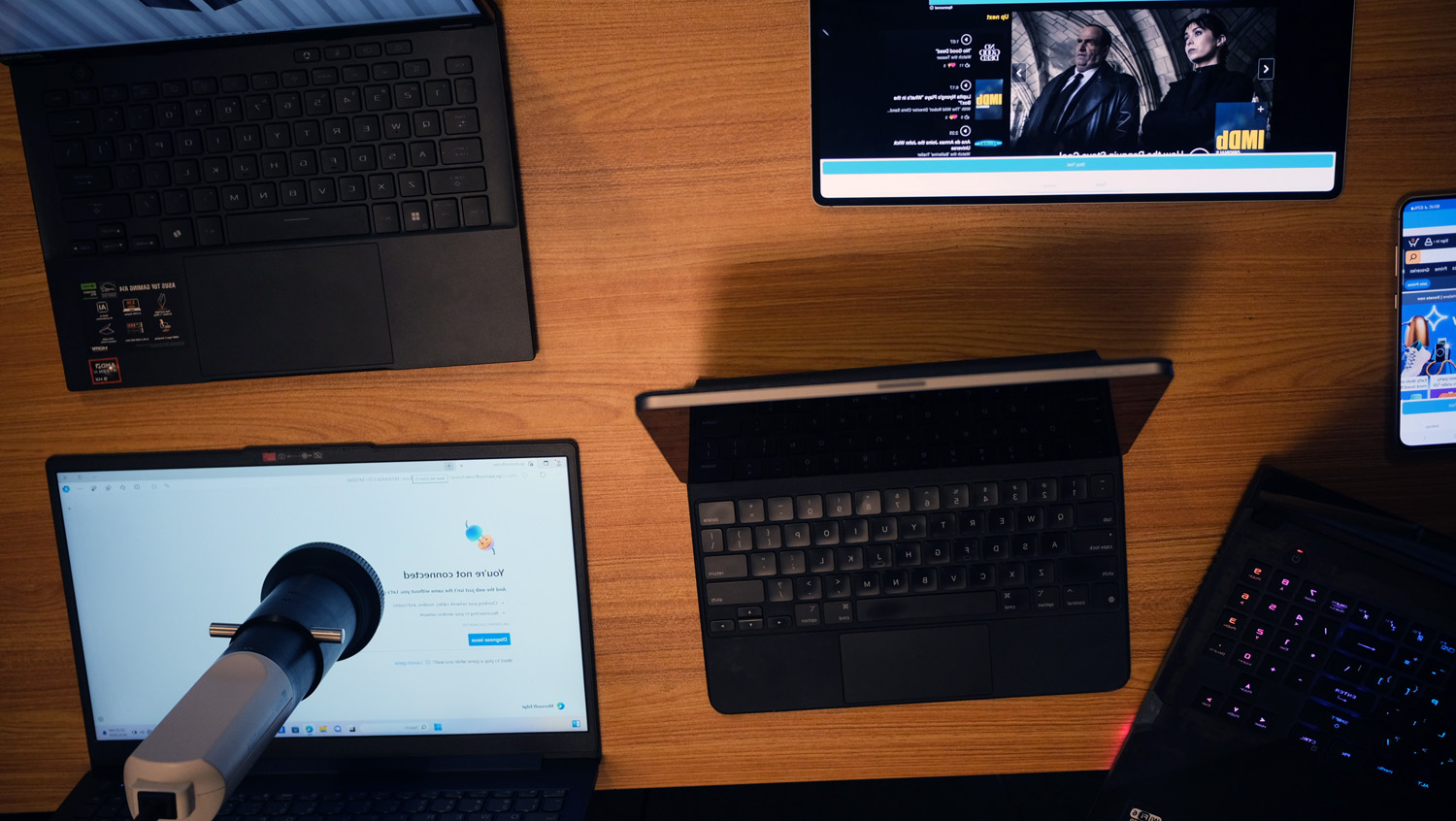

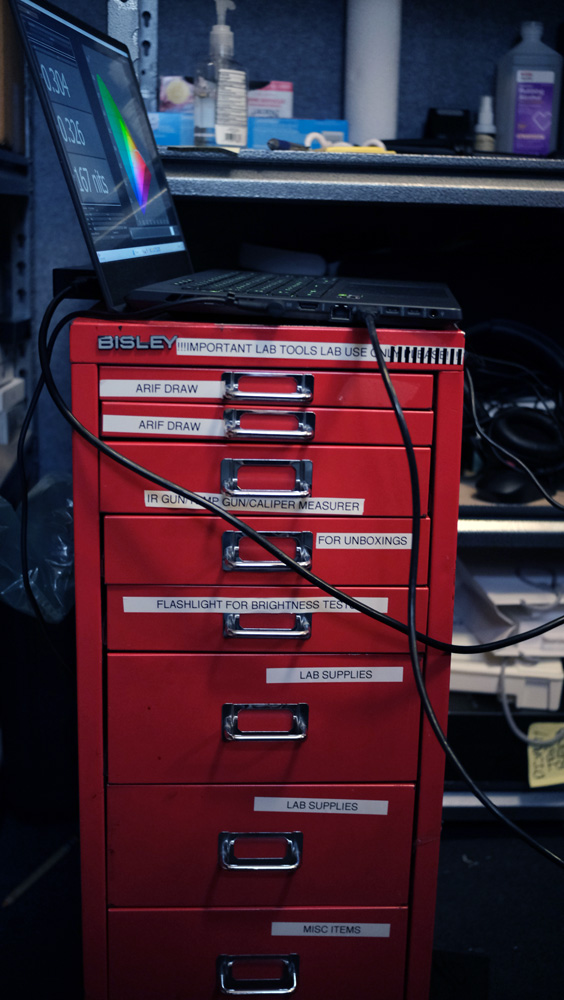
We put MacBooks through extensive benchmark testing—both synthetic and real-world—before they are handed to our reviewers. We evaluate everything from speed and battery life to display brightness, speaker volume, and system heat.
We use a Klein K10 colorimeter to detect a laptop display's brightness and sRGB color gamut. For performance benchmarking, we run the laptop through a gauntlet of benchmarks, including Geekbench 6, BlackMagic Disk Speed Test, and PugetBench for Adobe CC.
We task the laptop to convert a 4K video to 1080p resolution to determine real-world performance. Our real-world graphics tests on MacBooks include Borderlands 3, Shadow of the Tomb Raider, Sid Meier's Civilization VI: Gathering Storm, and Total War: Warhammer III in 1080p and native resolution settings.
We also run heat tests by playing a 15-minute full-screen video, and our proprietary Laptop Mag Battery Test consists of continuous web surfing over wifi at 150 nits of brightness. Anything over 10 hours is considered strong battery life, a standard every current Macbook easily surpasses.
Following these tests, the laptop is given to our expert reviewers for extensive hands-on testing. Our reviewers will spend days using the laptop as part of their typical workflow to get a sense of the real-world performance and live with the laptop to come away with a thorough understanding of the hardware and software experience. This blended lab testing and hands-on approach allows us to offer you a clear and comprehensive view of every laptop that comes through Laptop Mag.
Why Trust Laptop Mag
Laptop Mag reviews over a hundred laptops yearly, from paperweight ultralights to everyday workhorses to lumbering gaming notebooks that scorch the frame rates of even the hottest AAA games. We're not just experts in the laptop field, as we go one step further by meticulously testing smartphones, tablets, headphones, PC accessories, software, and even the latest in gaming.
We are 100 percent independent and have decades of experience to help you buy with confidence. In fact, Laptop Mag has been testing and reviewing products for three decades and continues to deliver trustworthy reviews you can rely on.
Our experienced team of writers and editors scour the available information about the laptop and put it through its paces to determine which is best for you. But before they start, the testing team subjects each system to a rigorous regimen of synthetic and real-world tests to see how a system handles the type of work and games you’re most likely to throw at it.
One of the world's largest technology publishers, Future Publishing, enforces our editorial trustworthiness. As a company, we have unrivaled experience across every tech sector — and we're the group's specialist for all things mobile tech.
Sean Riley has been covering tech professionally for over a decade now. Most of that time was as a freelancer covering varied topics including phones, wearables, tablets, smart home devices, laptops, AR, VR, mobile payments, fintech, and more. Sean is the resident mobile expert at Laptop Mag, specializing in phones and wearables, you'll find plenty of news, reviews, how-to, and opinion pieces on these subjects from him here. But Laptop Mag has also proven a perfect fit for that broad range of interests with reviews and news on the latest laptops, VR games, and computer accessories along with coverage on everything from NFTs to cybersecurity and more.
